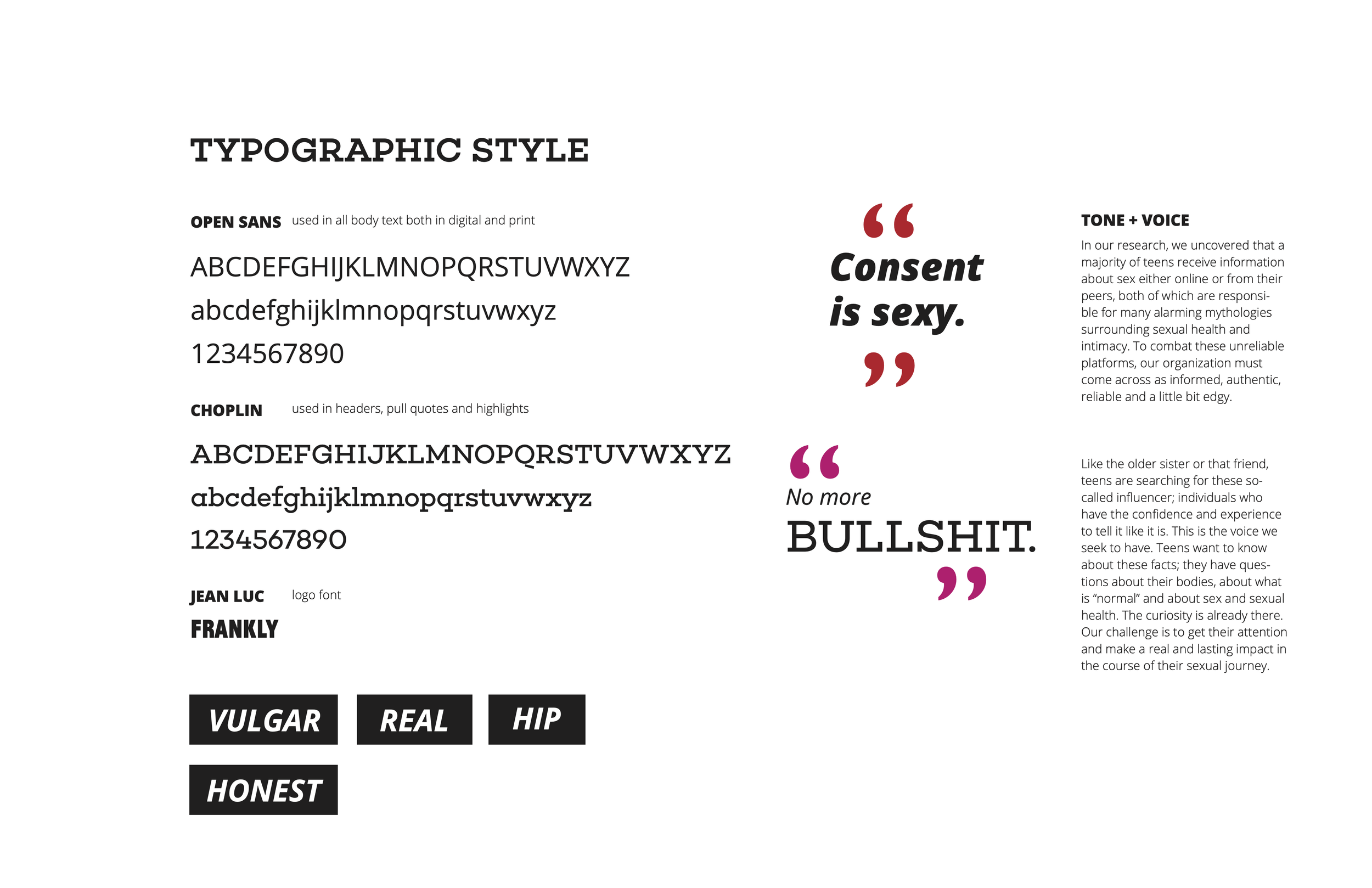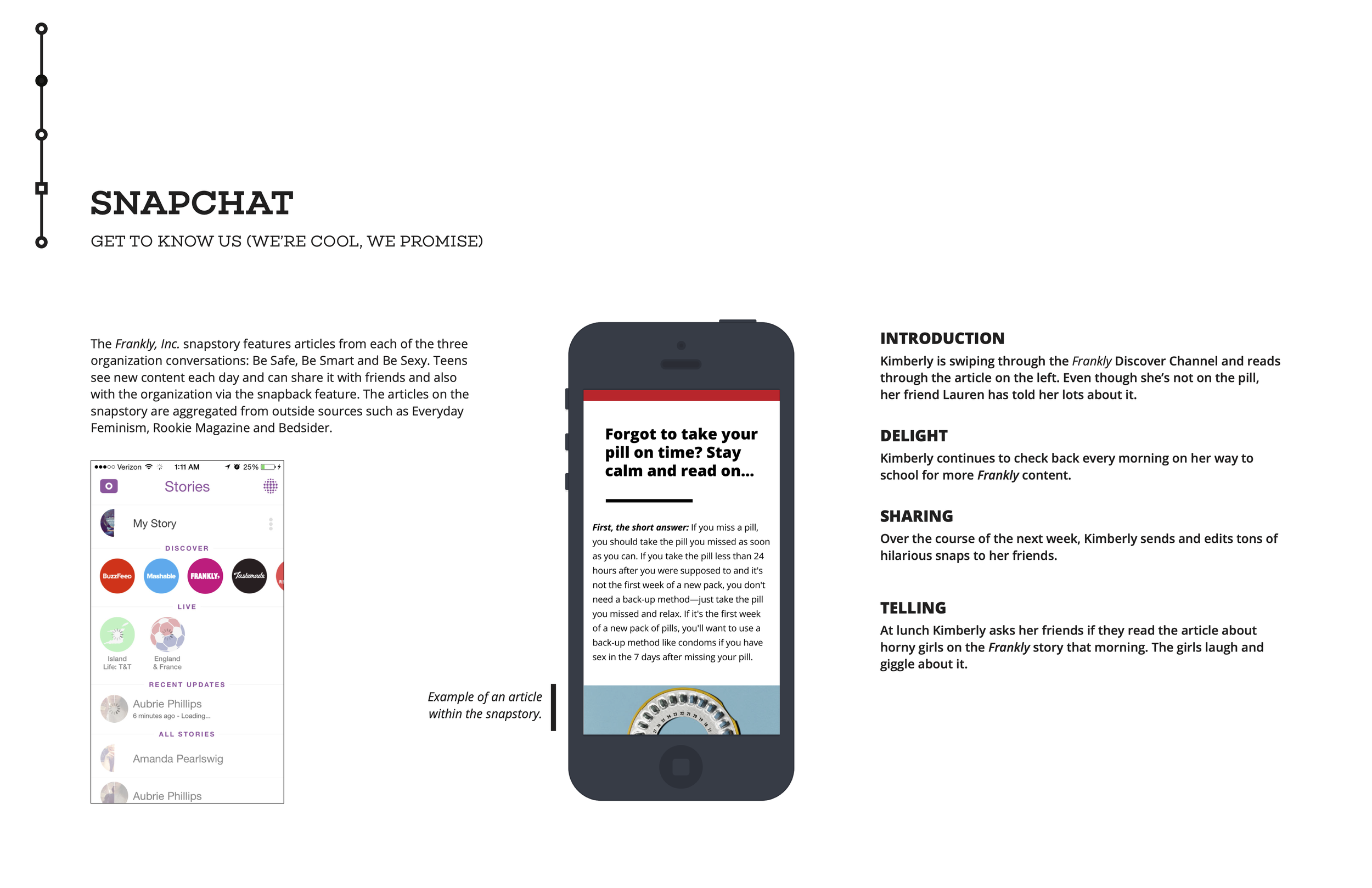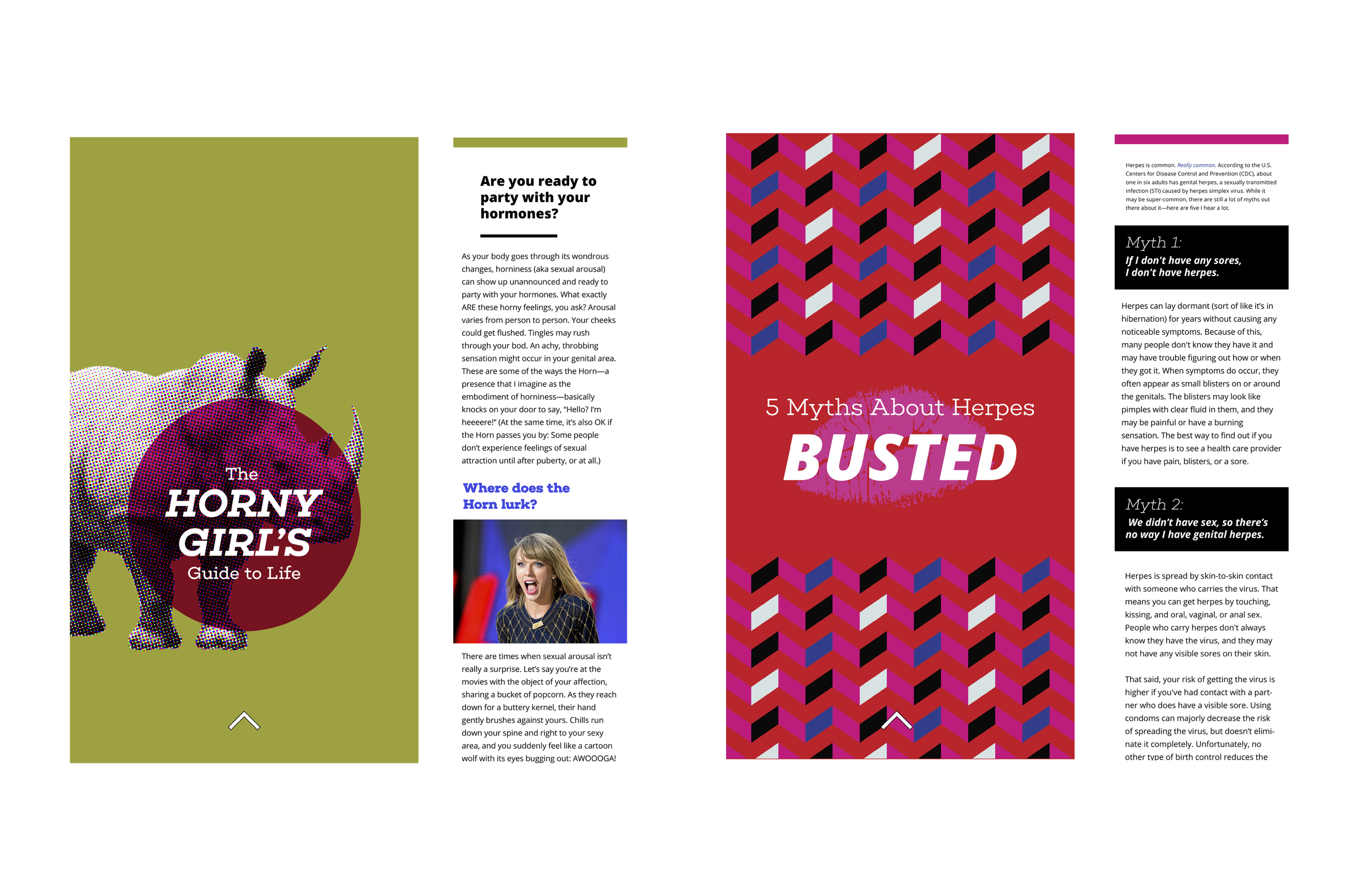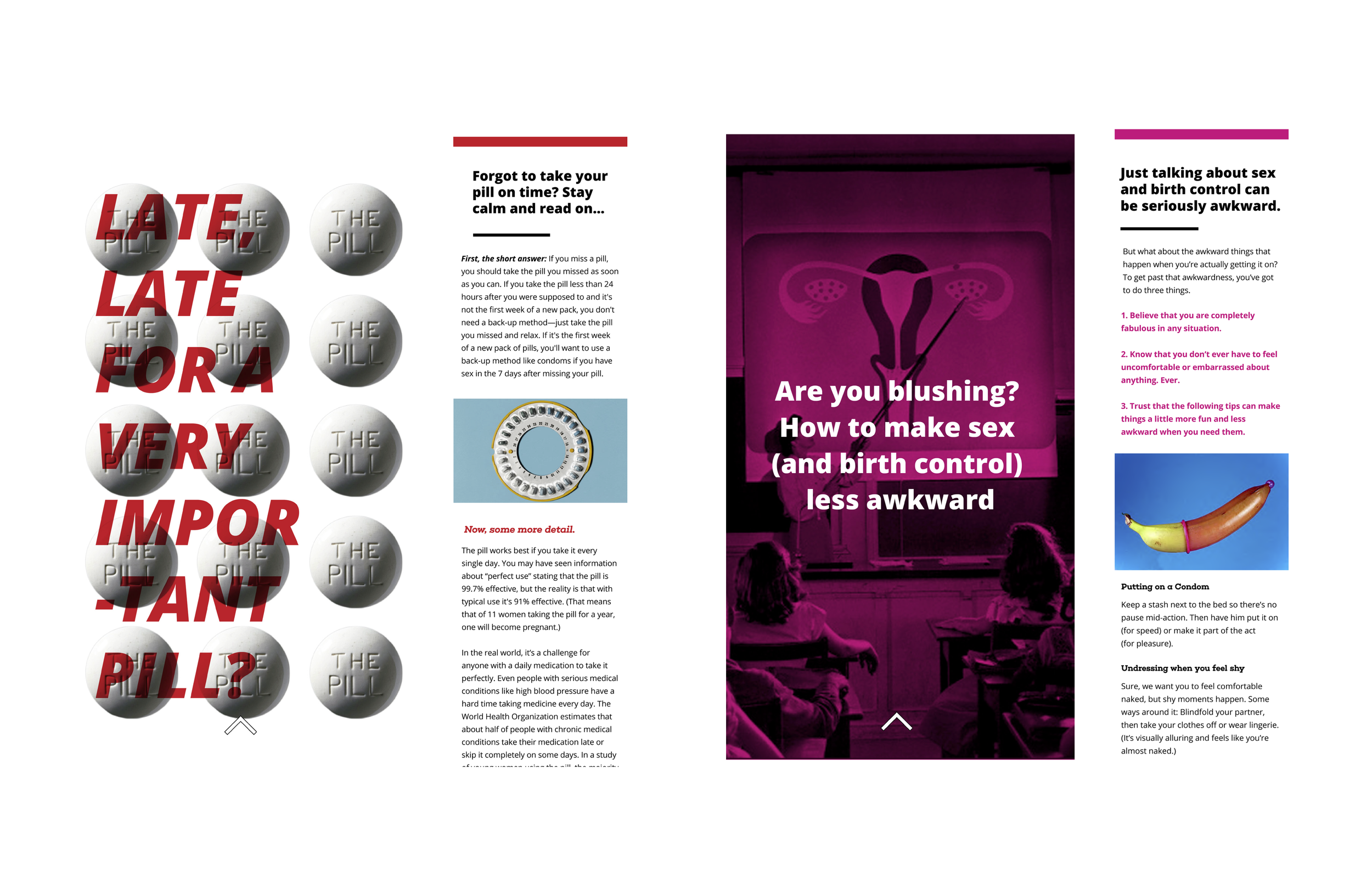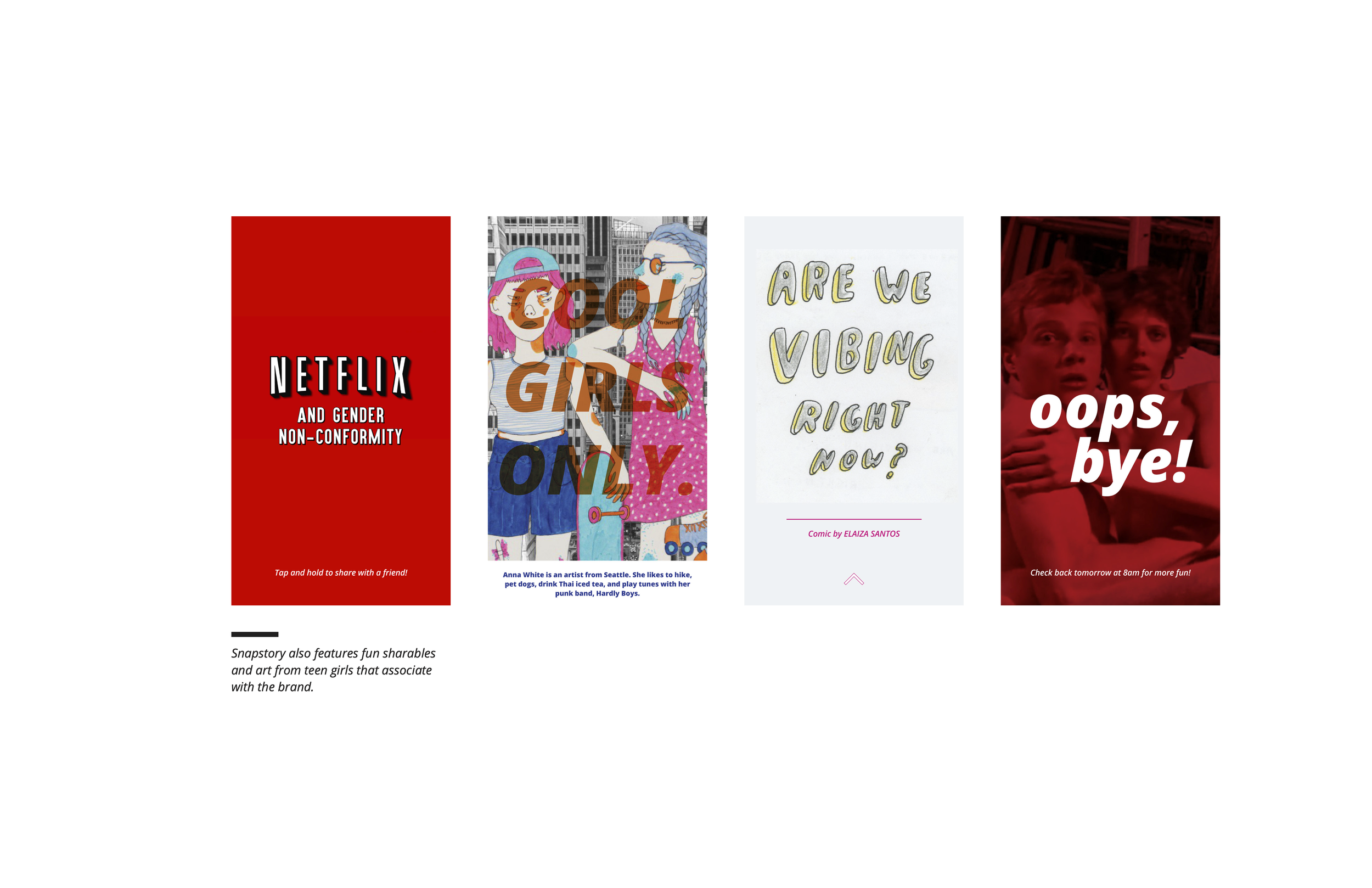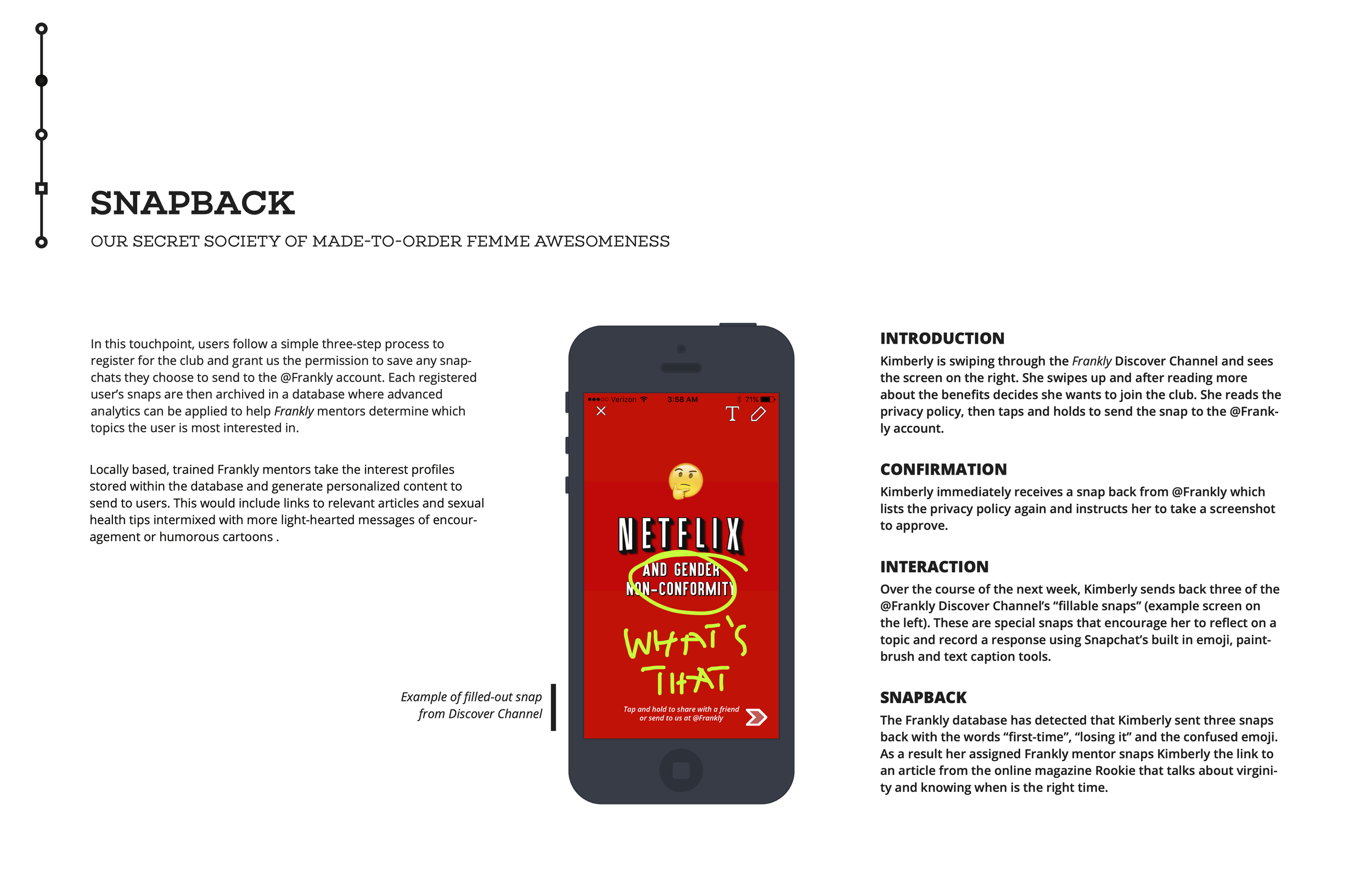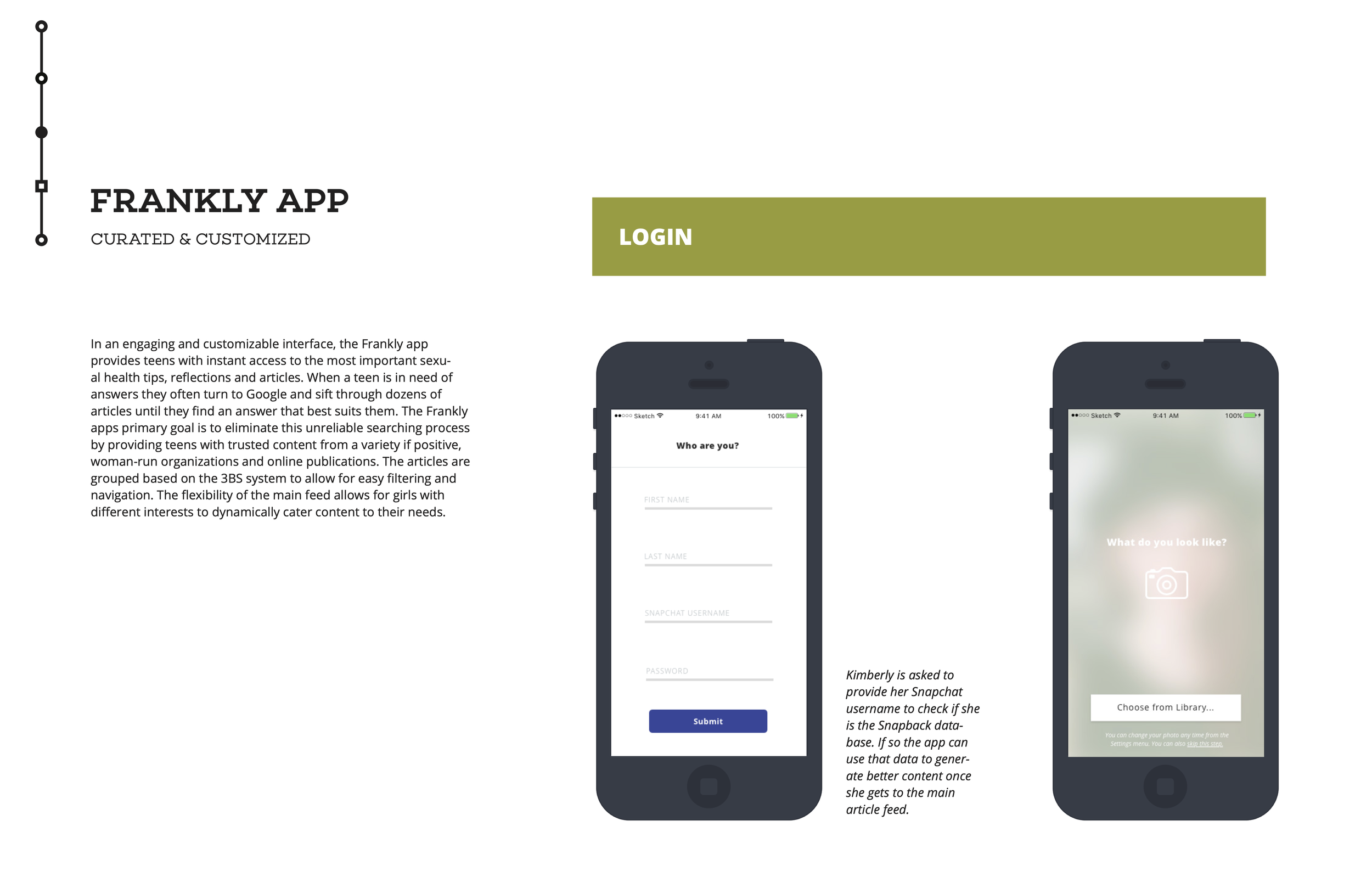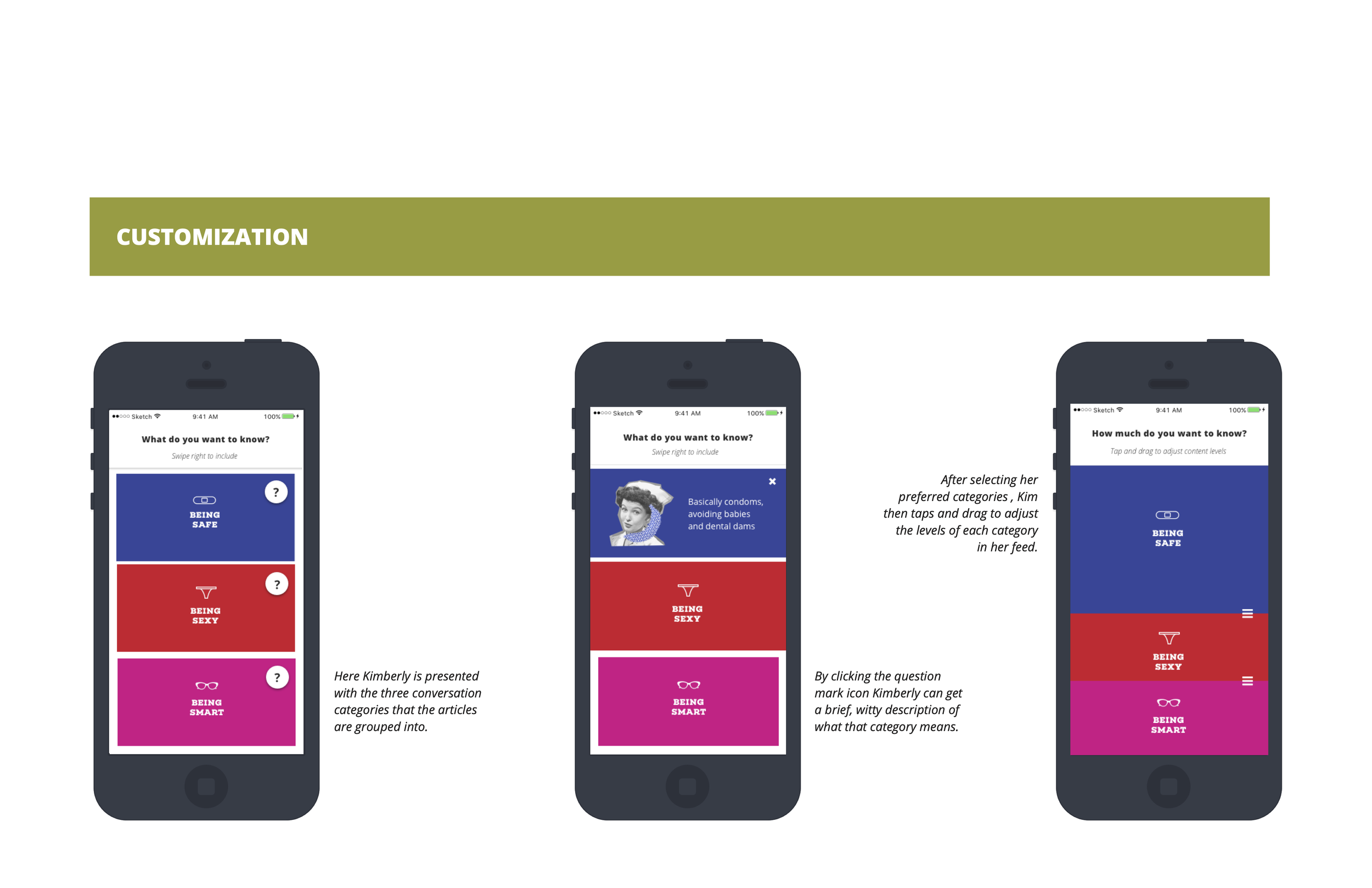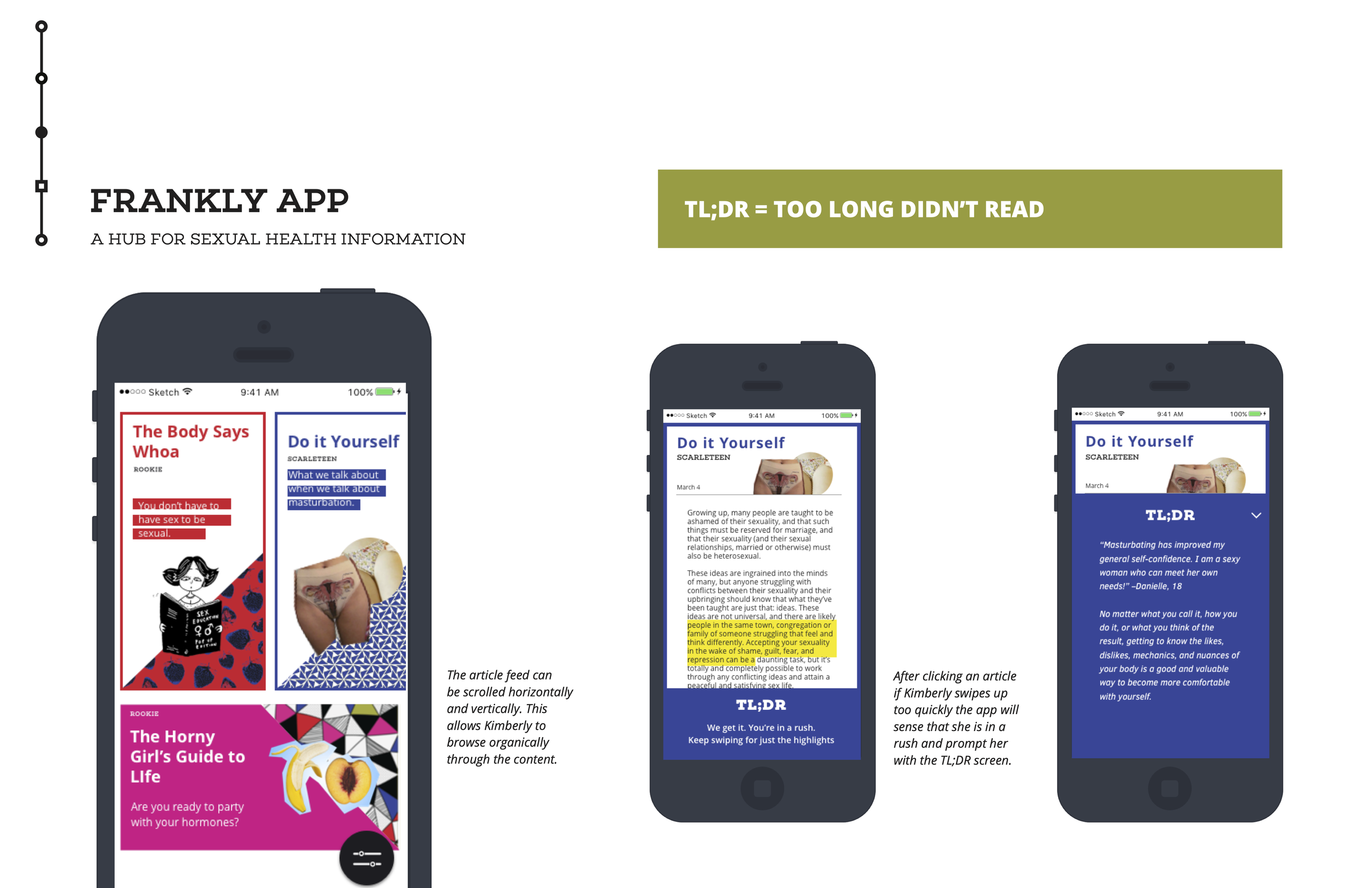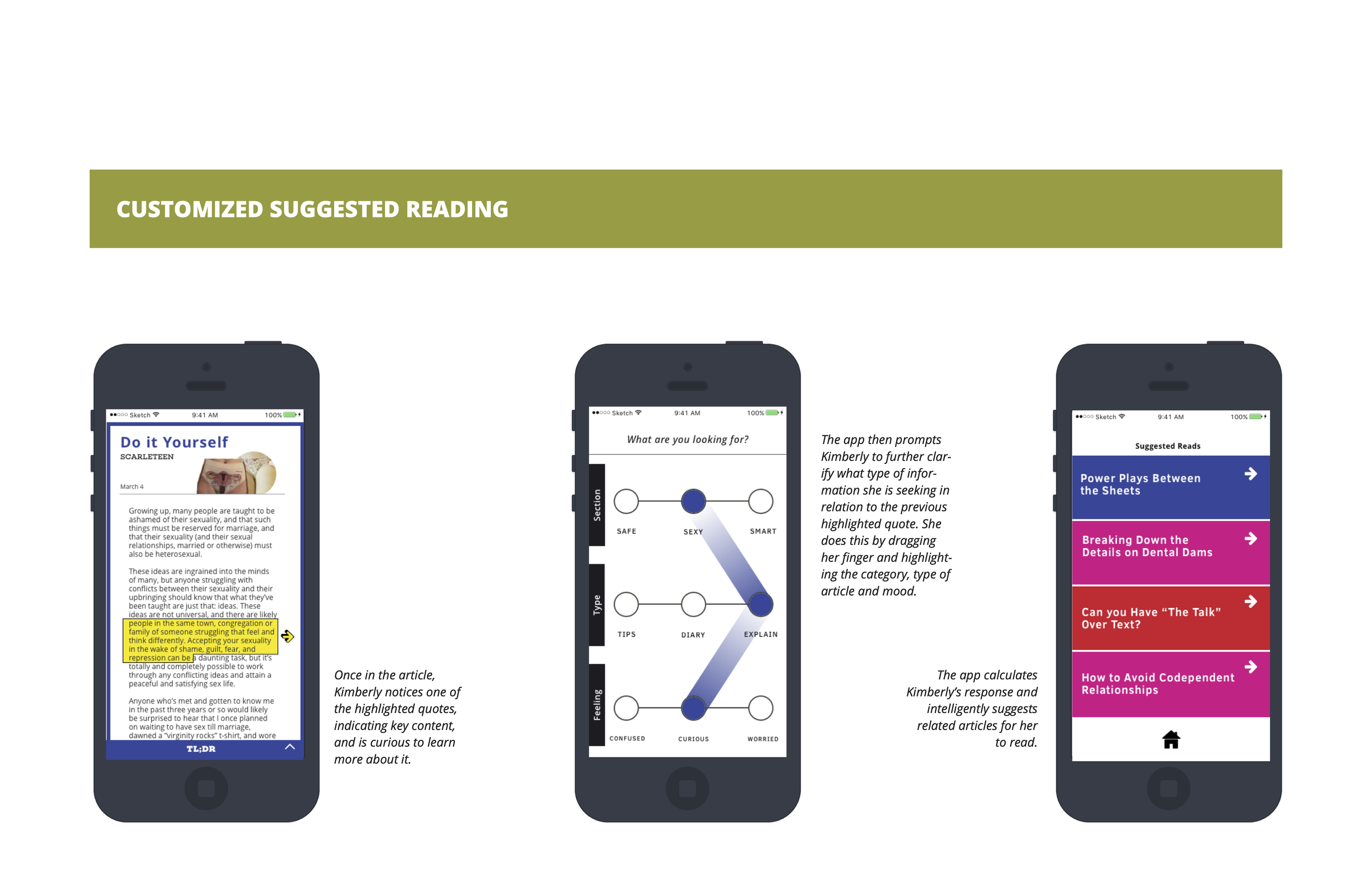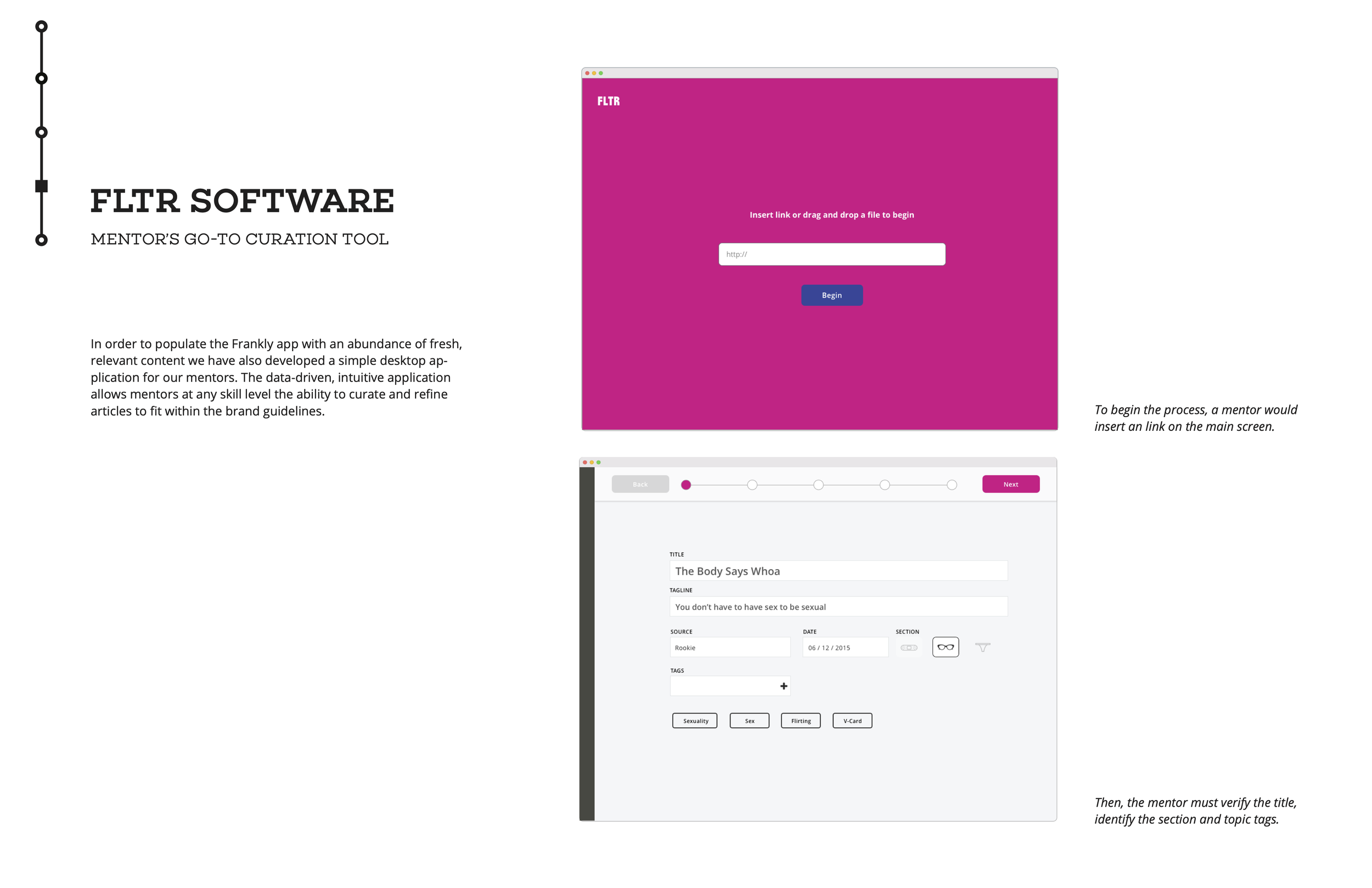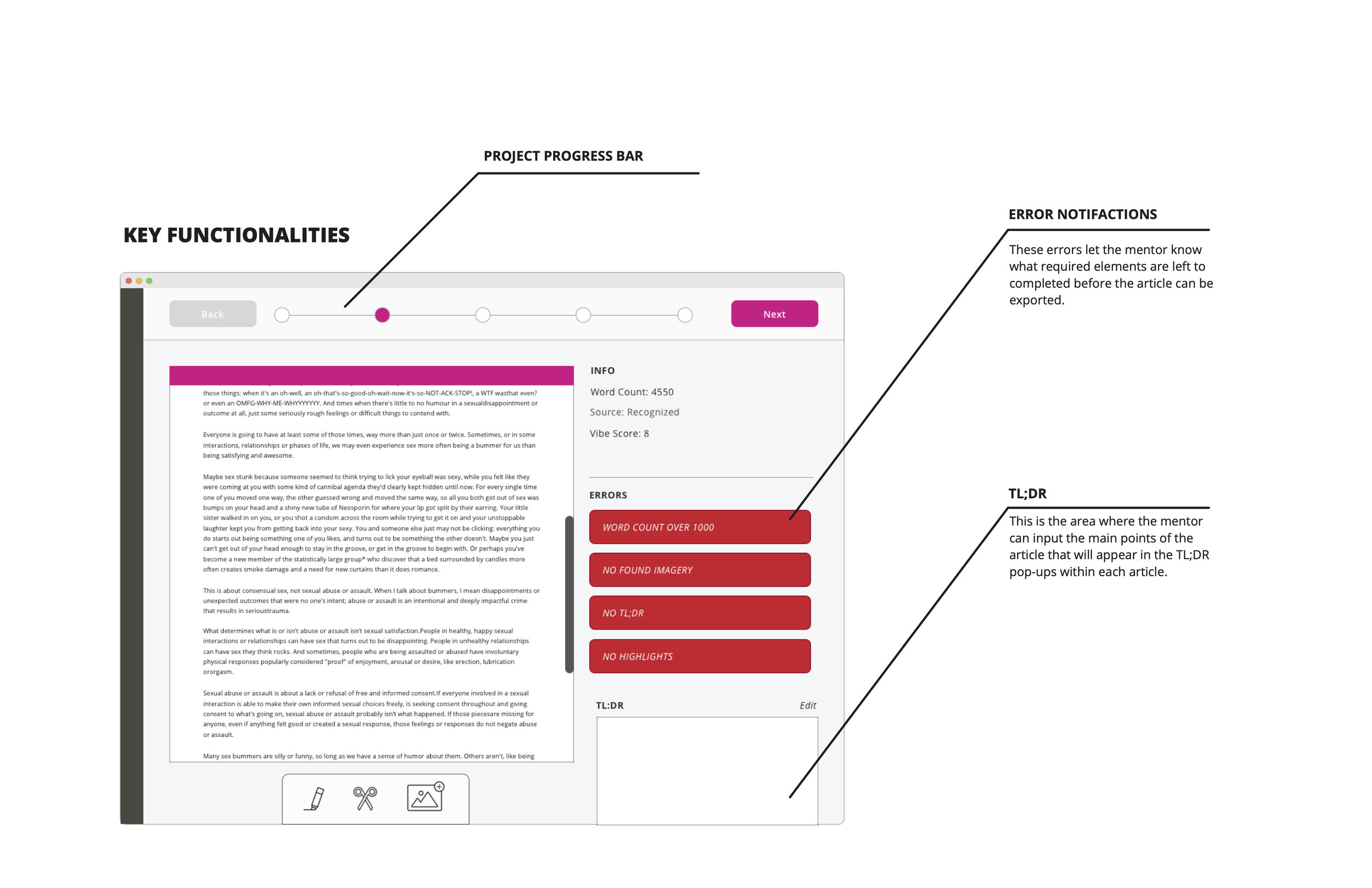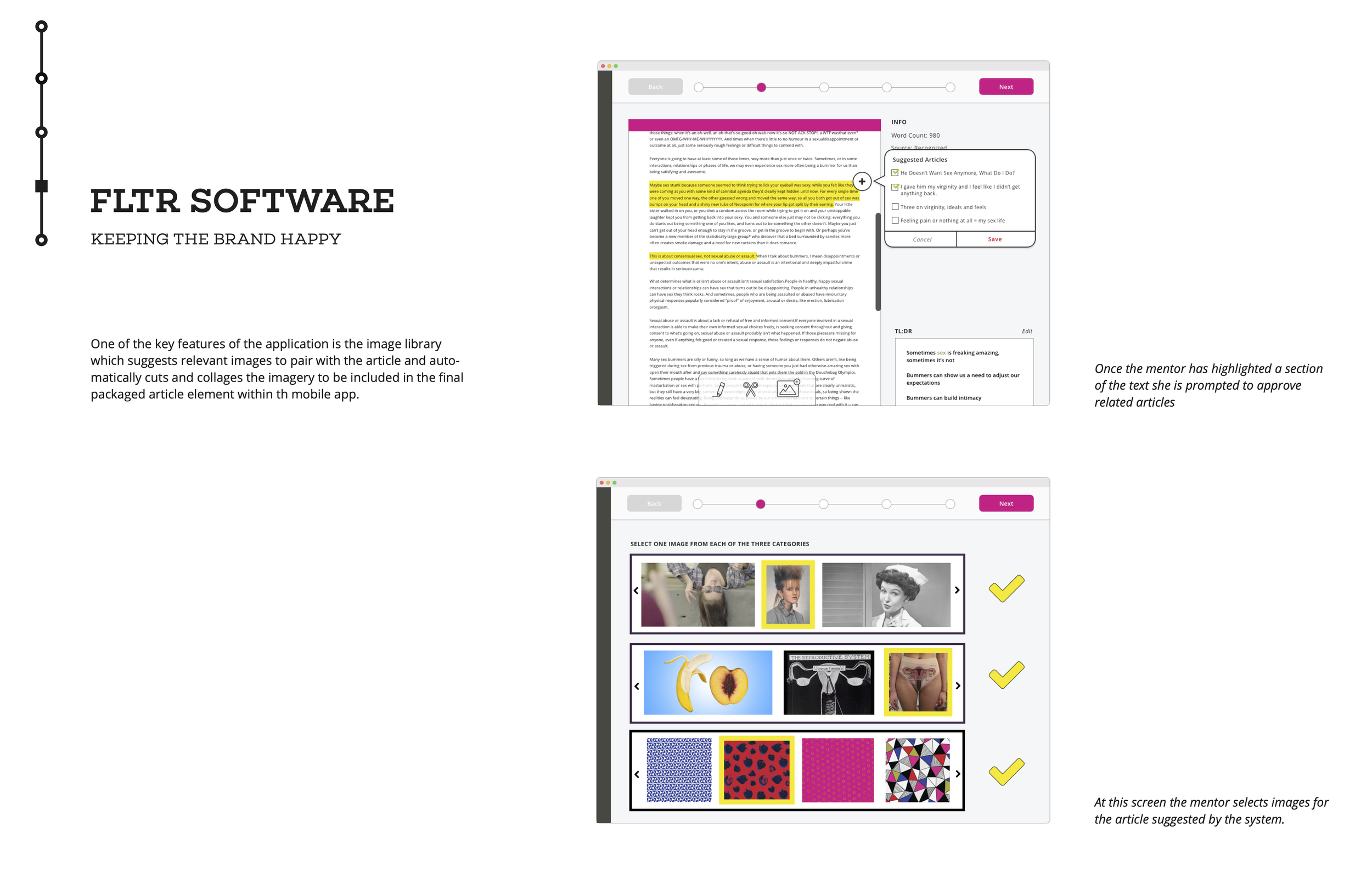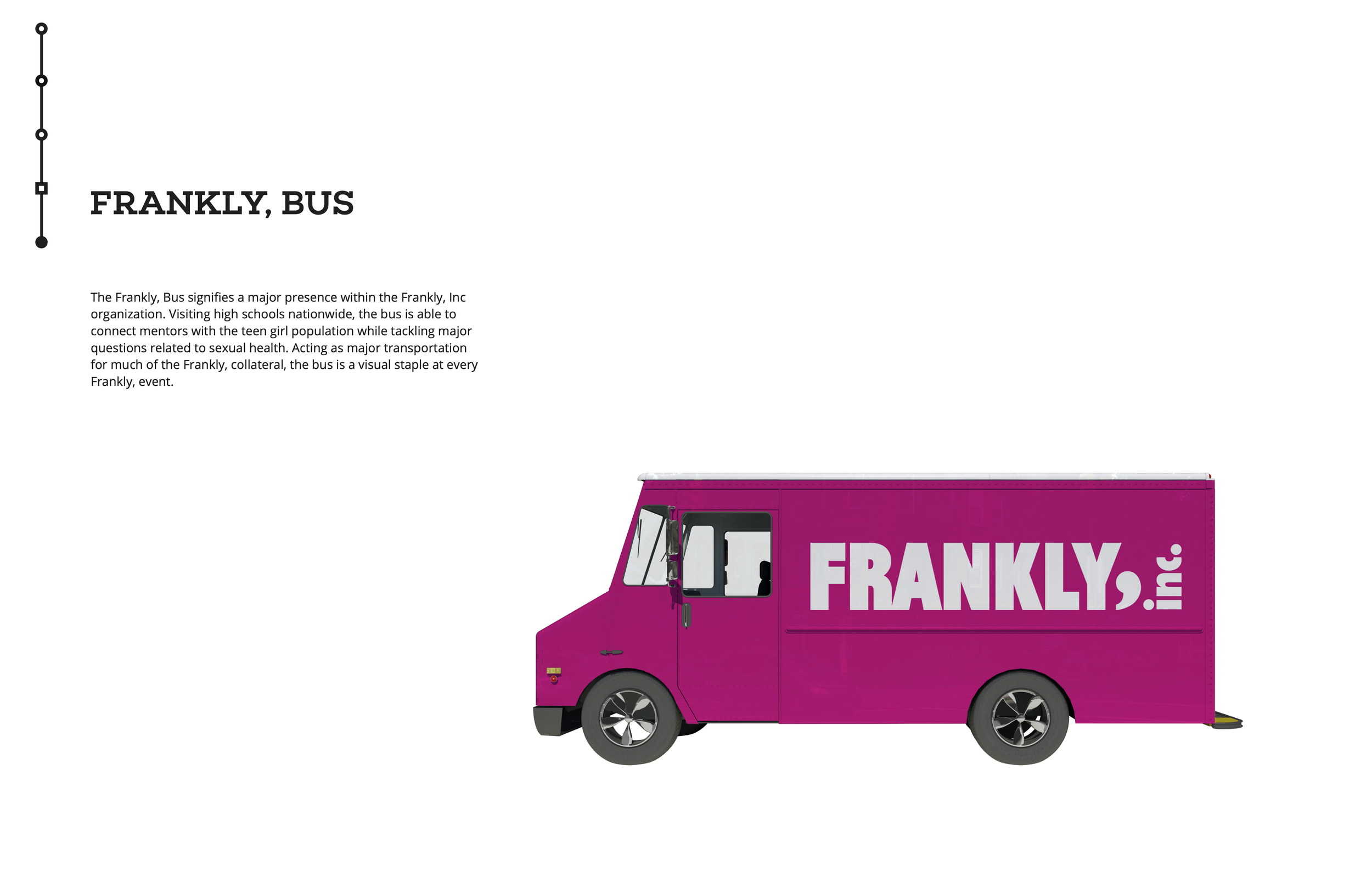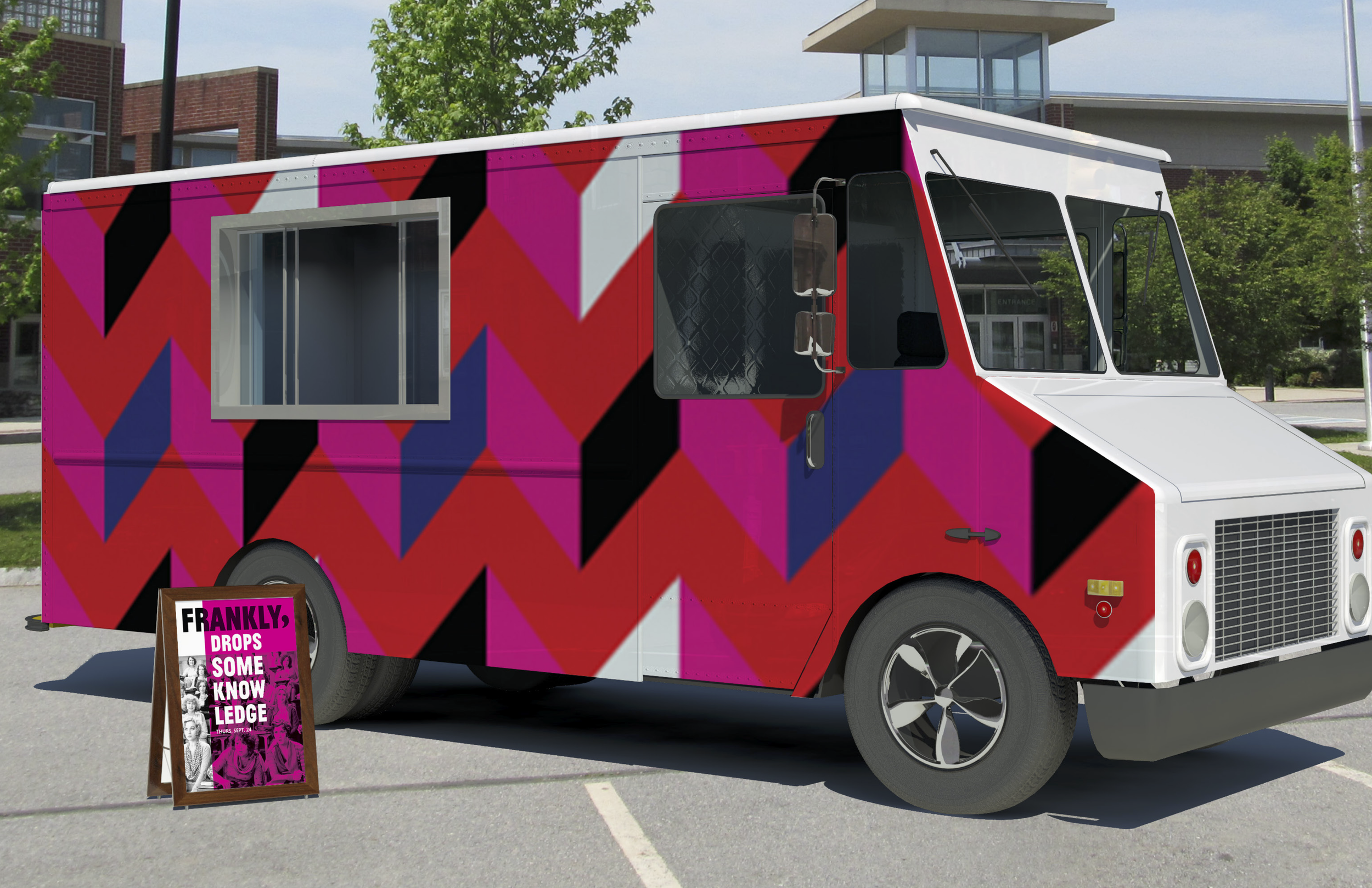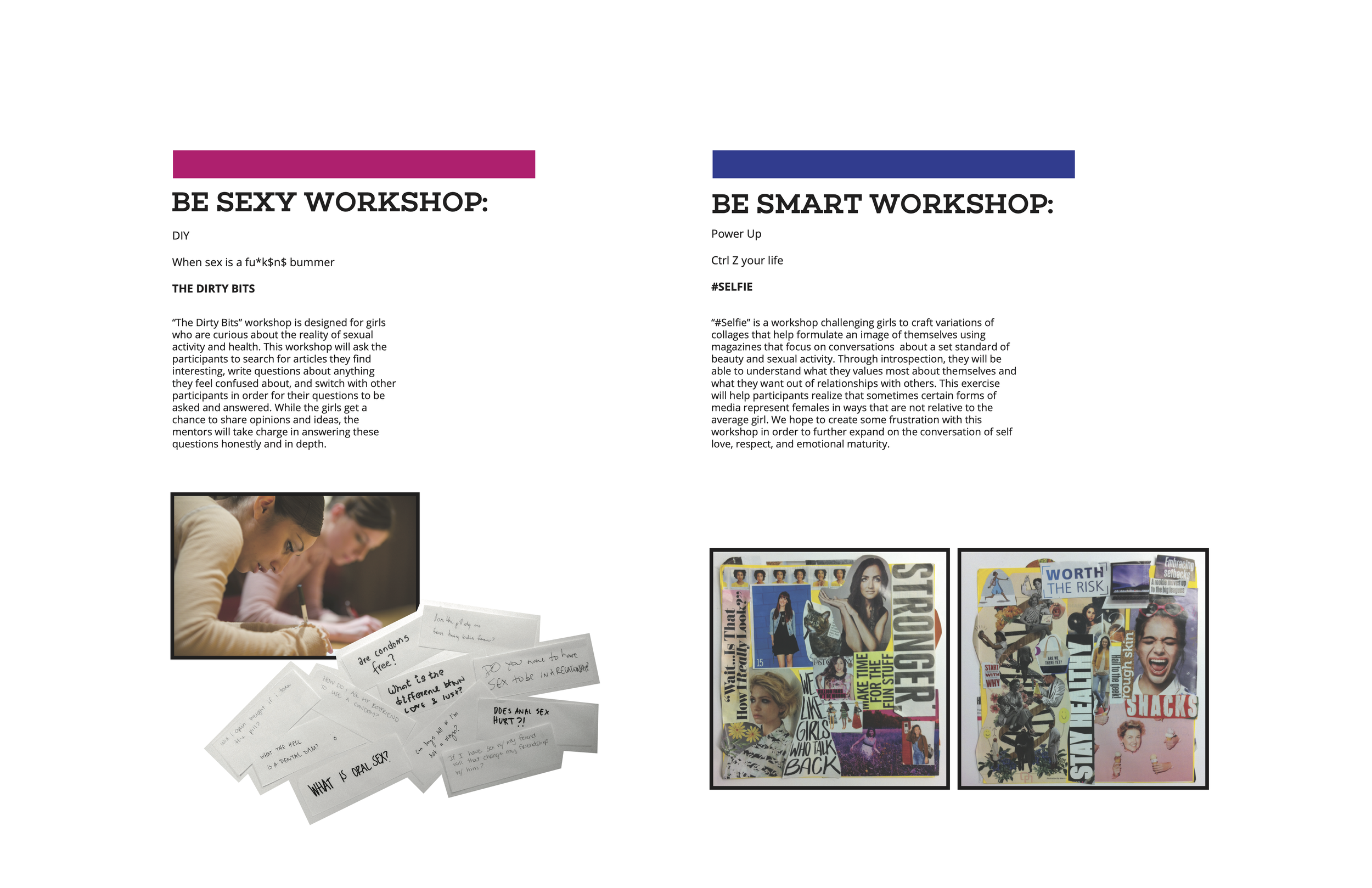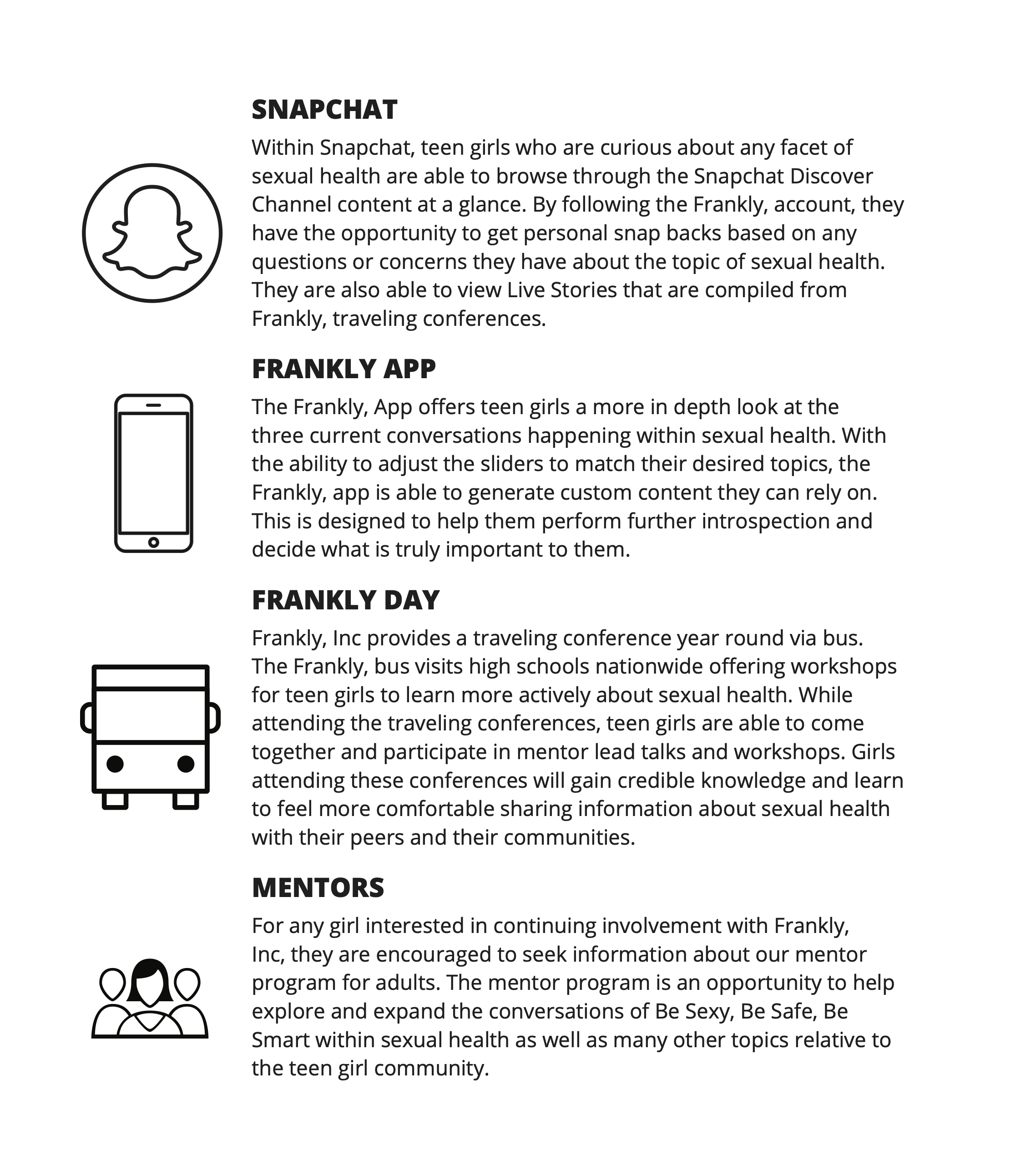Frankly,
Responding to a singular patriarchal dissatisfaction and a passionate fervor for disrupting the status quo, the Frankly, project speculates how an organization based on feminist ideals can empower young girls to make choices about sexual health more actively and without judgment. While feminism is a charged topic with many misunderstandings, this project creates a distance from preconceived labels and stereotypes to create a unique identity and redefining empowerment.
In collaboration with Melanie Loff-Bird, Morgan McDonnell
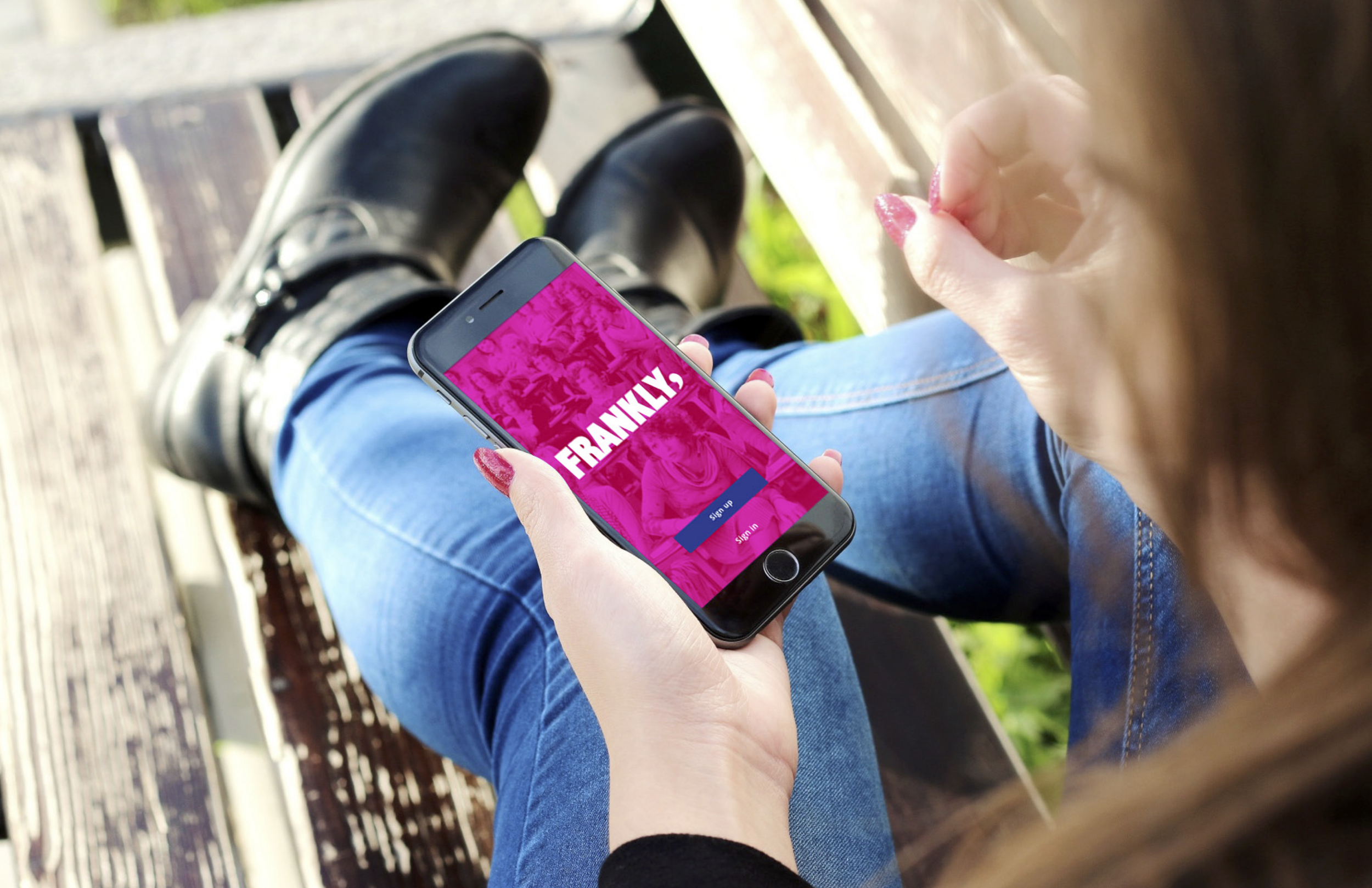
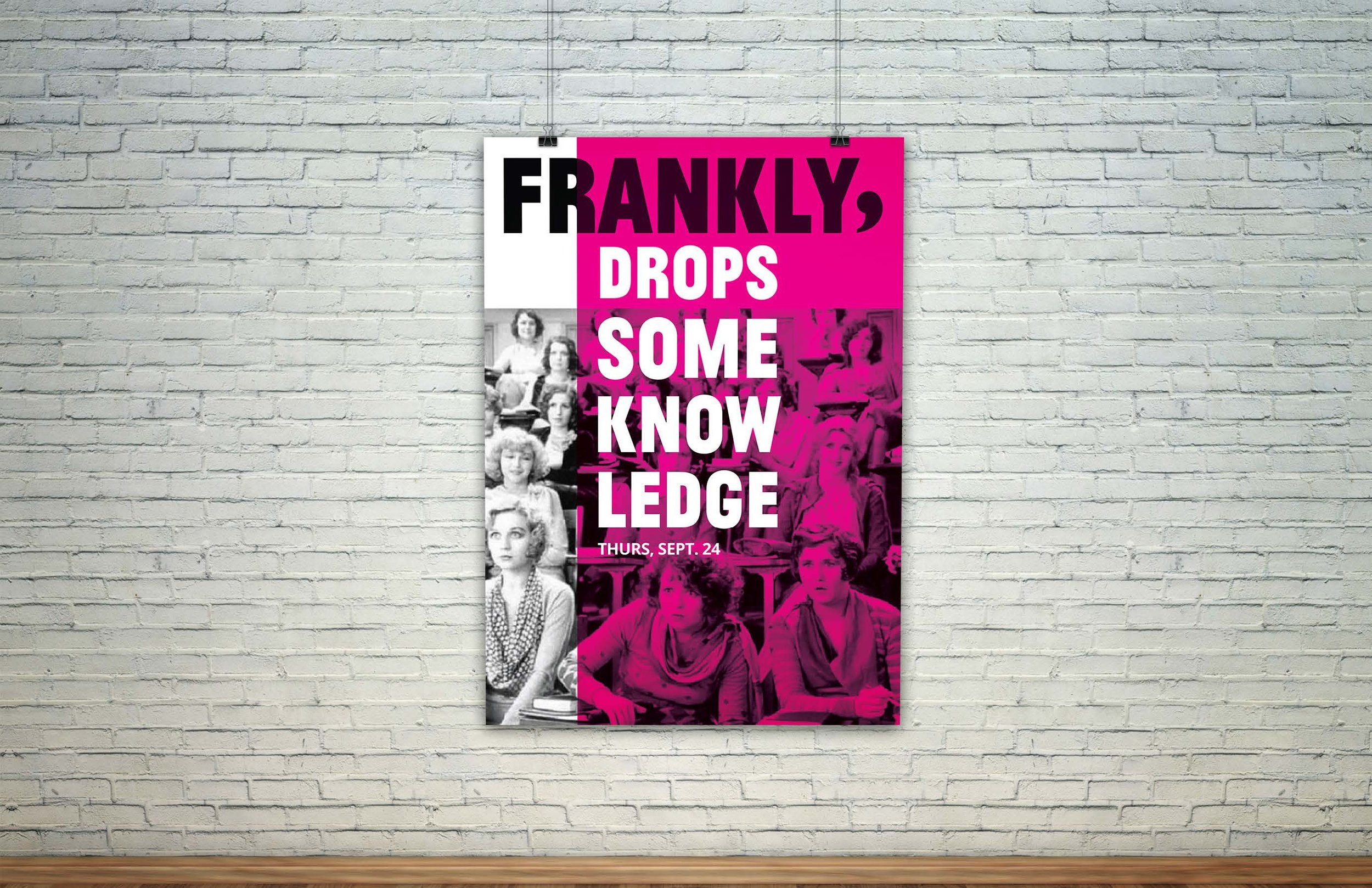
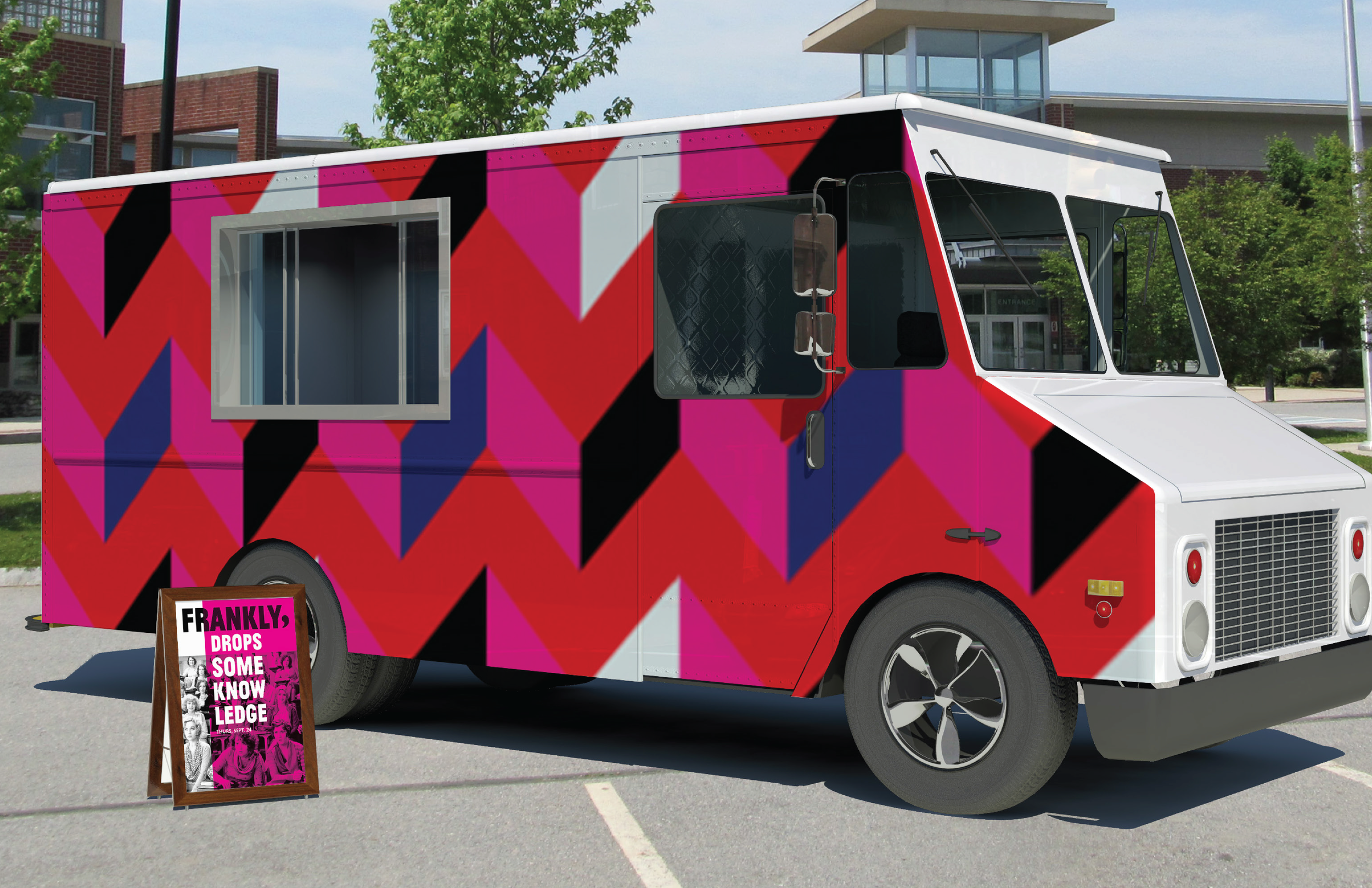
Intentions
Drawn by a singular patriarchal dissatisfaction and a passionate fervor for disrupting the status quo, we acknowledge that feminism is a charged topic that many people have misunderstandings about. Through this project, we wanted to design an organization based on these feminist ideals while distancing ourselves from any preconceived labels and stereotypes, creating our own identity. Our focused definition of feminism is centered around the ability for women to feel empowered in their choices and for those choices to be active rather than circumstantial.
Inspired by existing feminist organizations such as He for She, we were moved to address female empowerment as our primary goal. Because empowerment can take many forms and mean something different to each person, we quickly came to understand the depth and complexity of the topic.
Reflecting on our own personal experiences and those of the women and girls in our lives, we saw that empowerment is primarily rooted in knowledge and understanding. From there, we meditated on important aspects of womanhood that tend to lack this fundamental knowledge. In that regard, and in the wake of recent attacks on organizations such as Planned Parenthood, it became apparent that the issue of reproductive health was unable to be ignored.
Our challenge then became positioning ourselves to make a difference. We resolved that while we can’t redefine feminism or convince the world to value women’s health, we can empower women to take control of their own lives and bodies through a shared knowledge and understanding of sexual health.
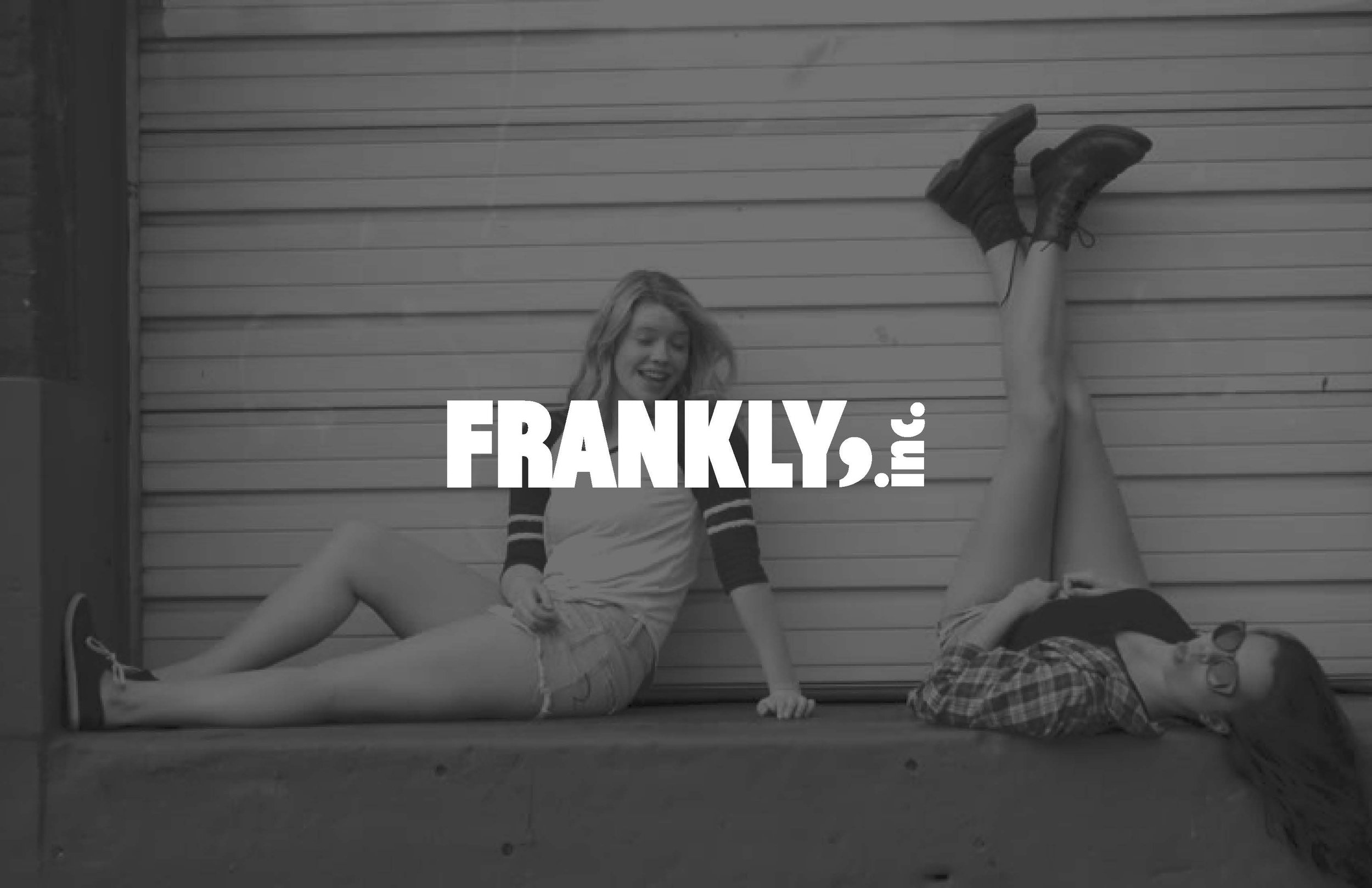
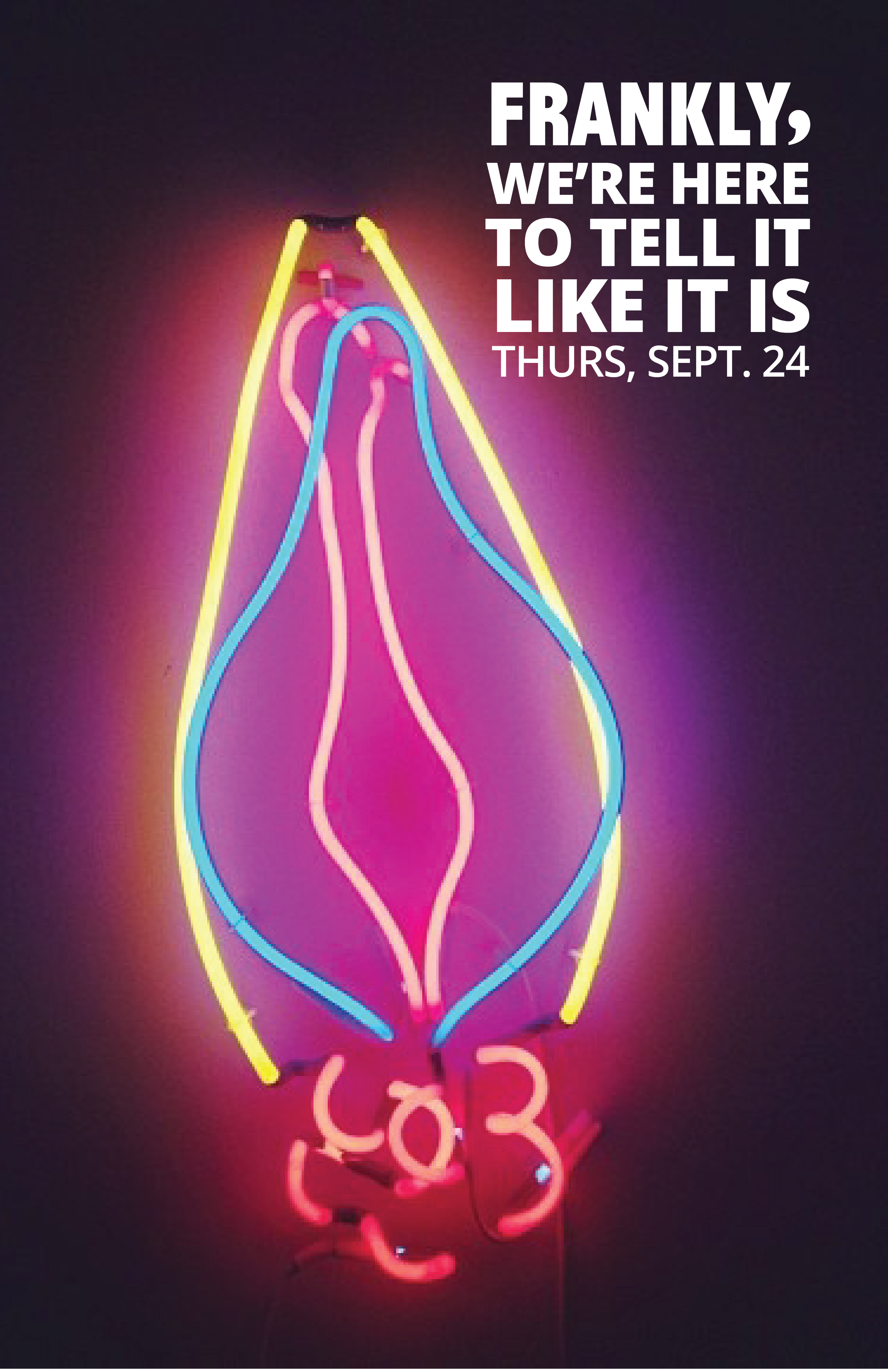
One of the most frequent questions surrounding sexual education is about timing. When is the right time to begin learning about sexual and reproductive health? At Frankly, Inc we believe there is no time too soon to begin those conversations, but that ultimately teenagers
are the ones who need it the most. As a teenager, the decisions you’re making feel like they will have ramifications forever. You feel by turns invincible and vulnerable, inconsequential and permanent.
It’s in all of this curiosity and vulnerability that teens seem to get lost, a barrage of confusion and angst merely chalked up to adolescence. But what if there was a way we could alleviate even a portion of that confusion? It’s often not until early adulthood that women are able to confidently understand themselves and their bodies, but why not earlier?
Conversations with teens regarding sex are often far too clinical, judgmental and white-washed. Sheltering girls from these sexual topics, topics they’re already thinking about, talking about and acting on, is counter productive.
Educating teen girls about their sexual health is the first step in creating a new generation of strong, knowledgeable and empowered women.

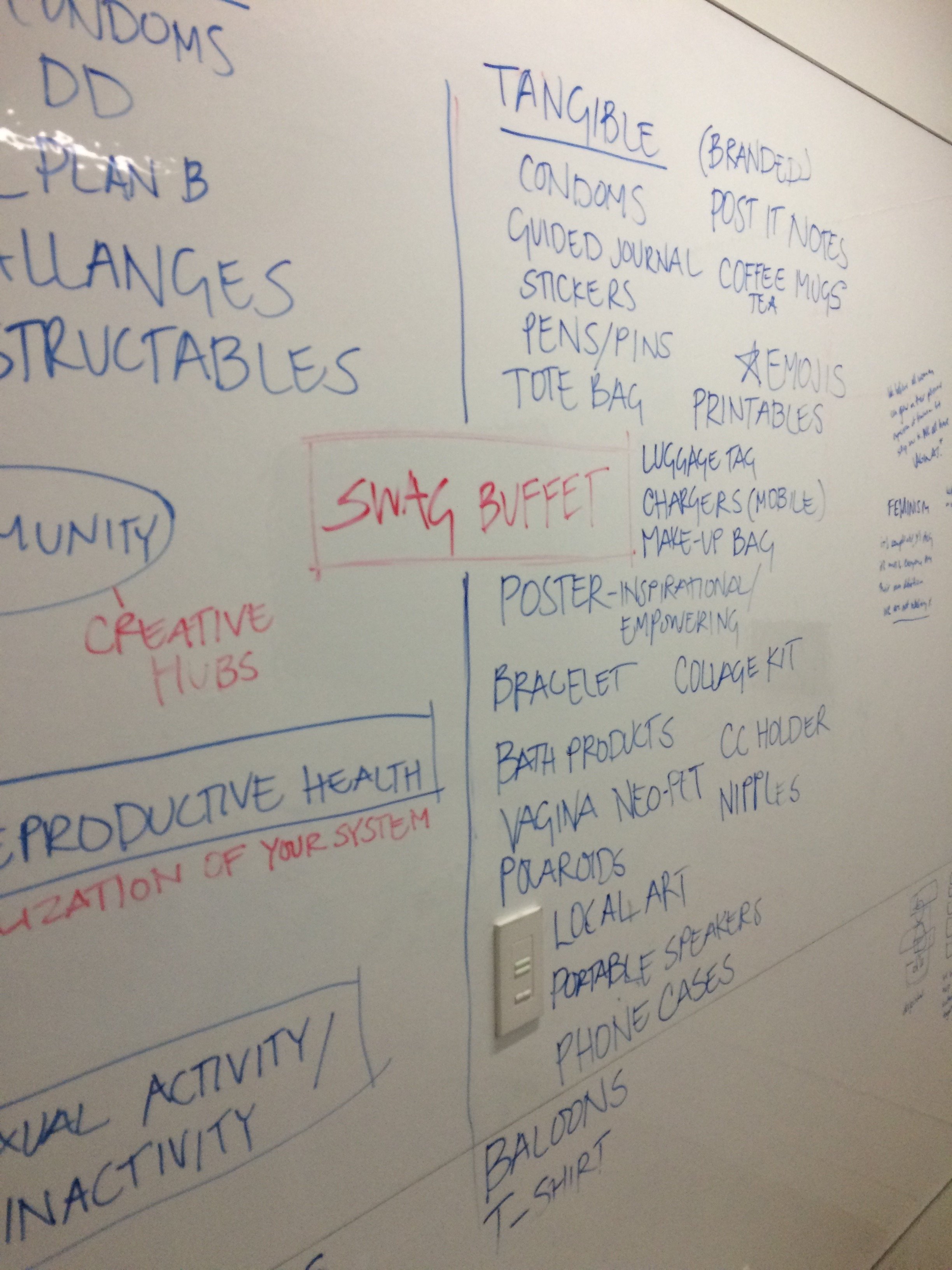
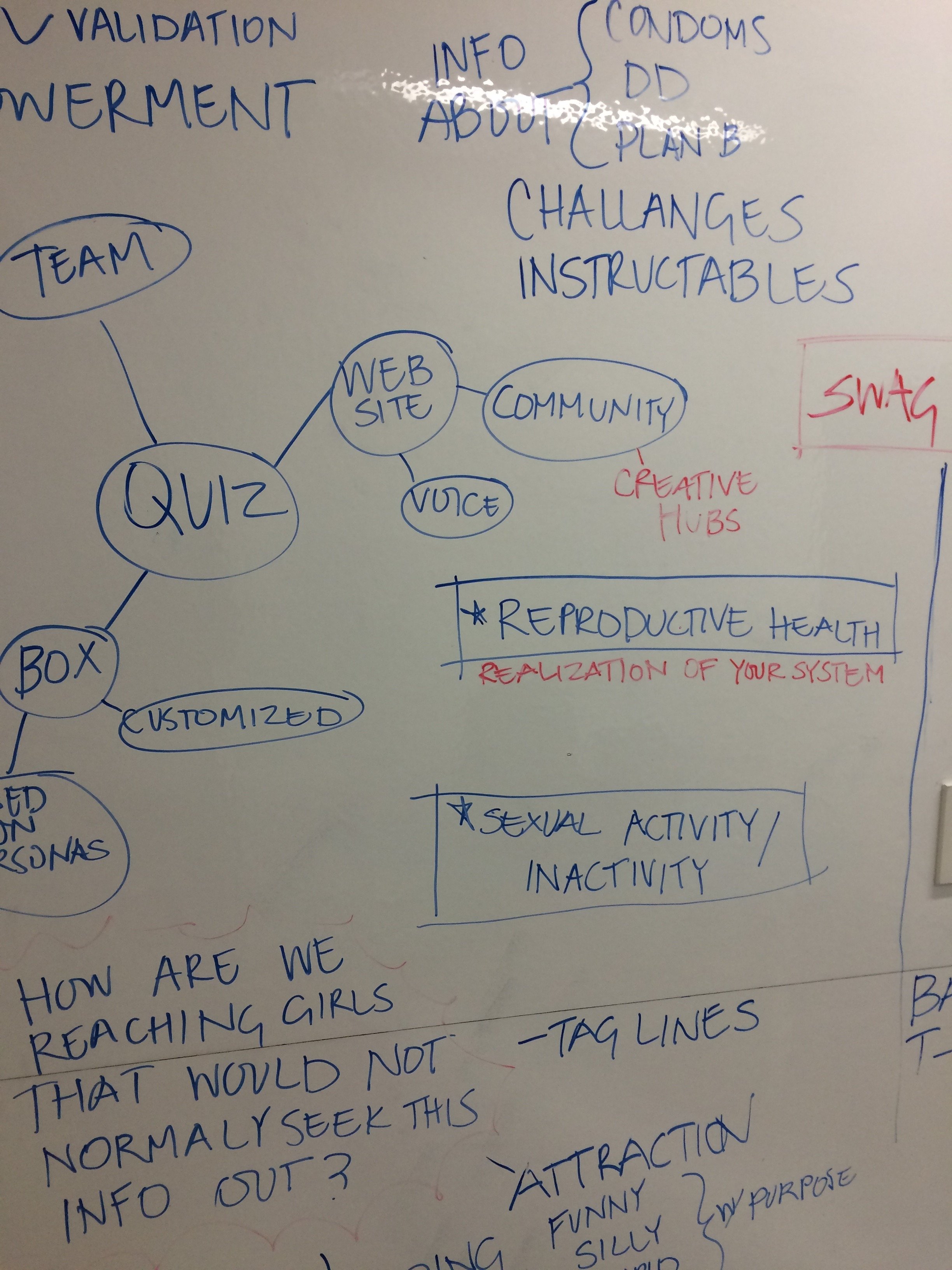

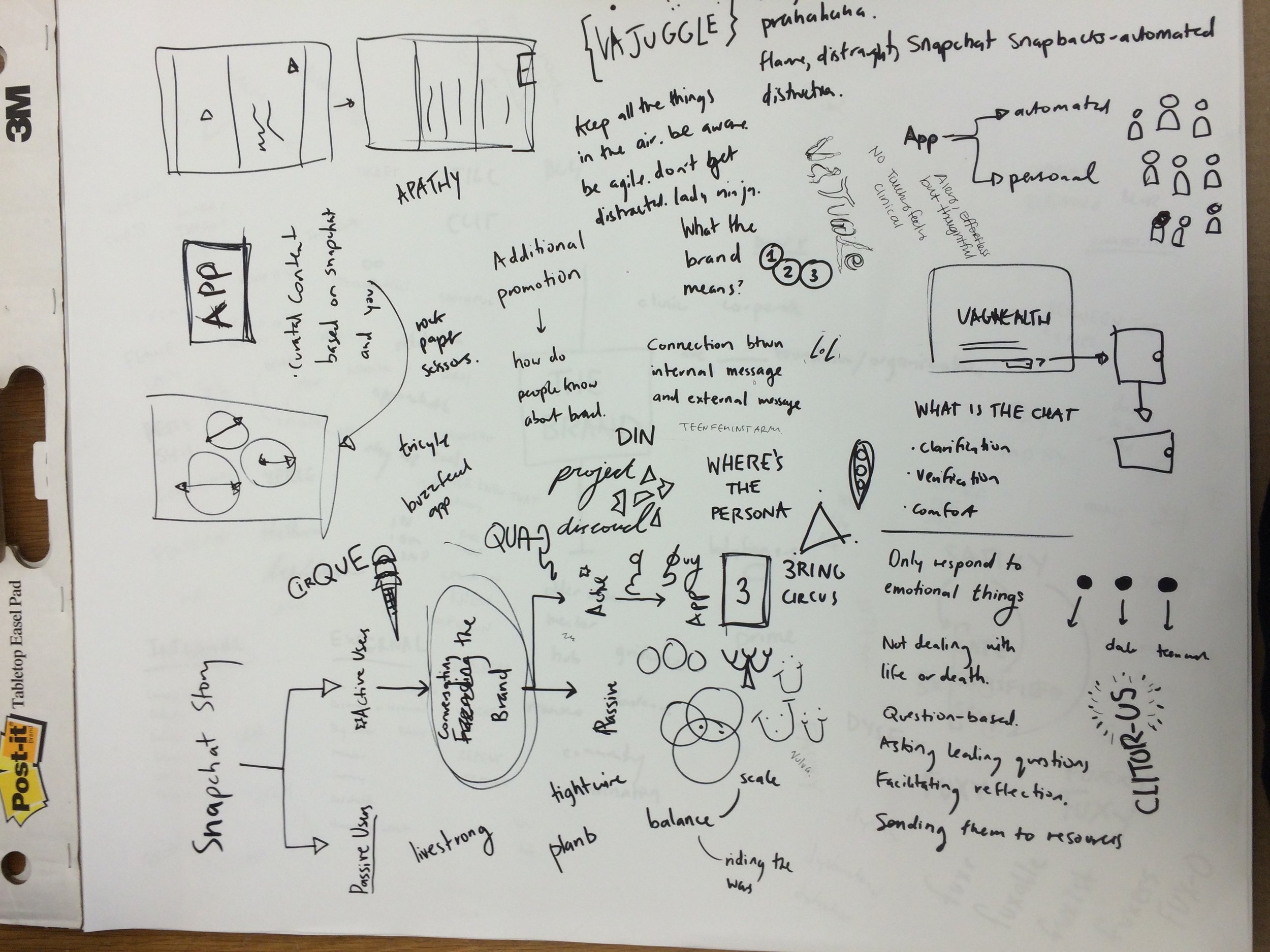
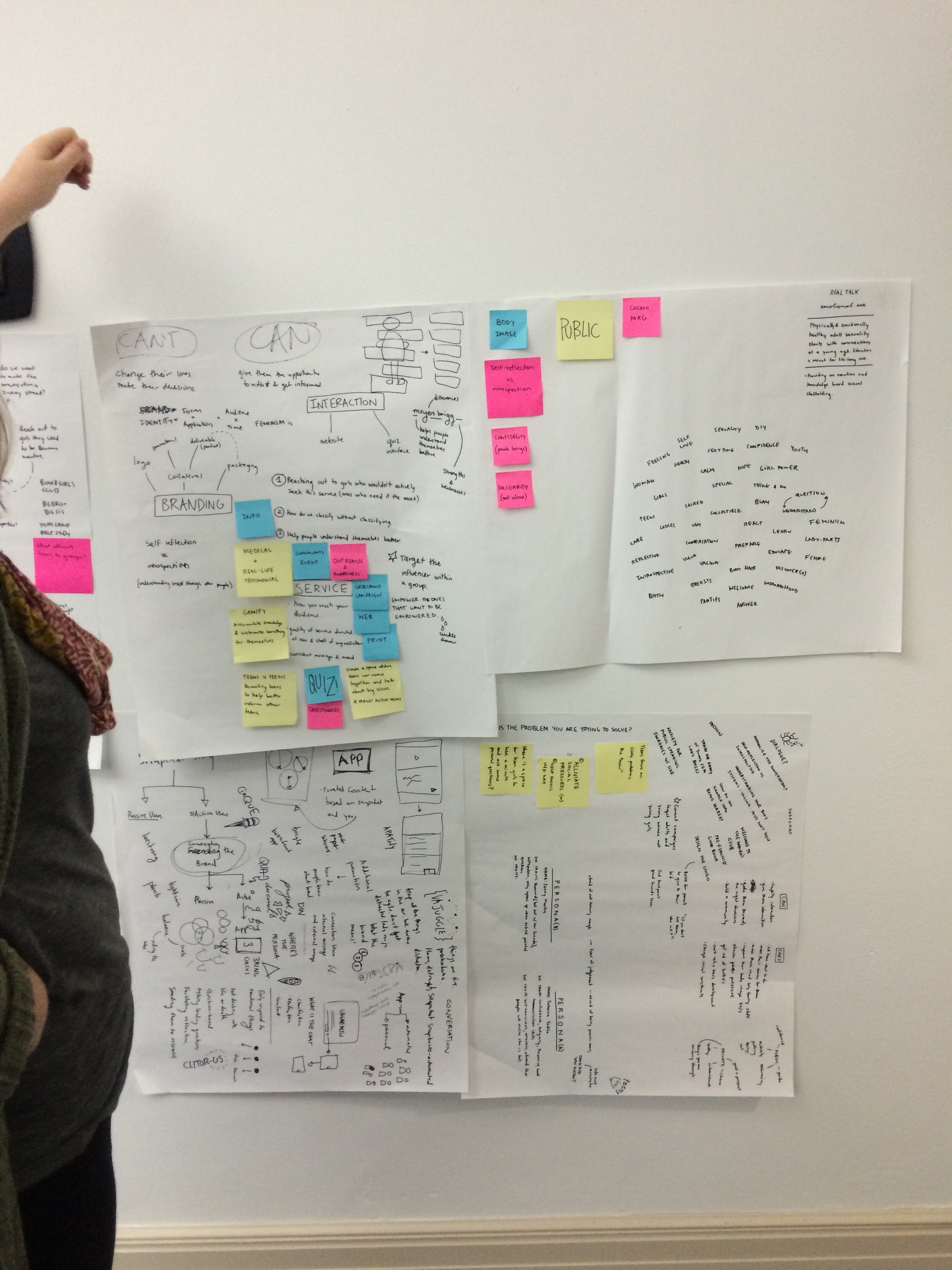
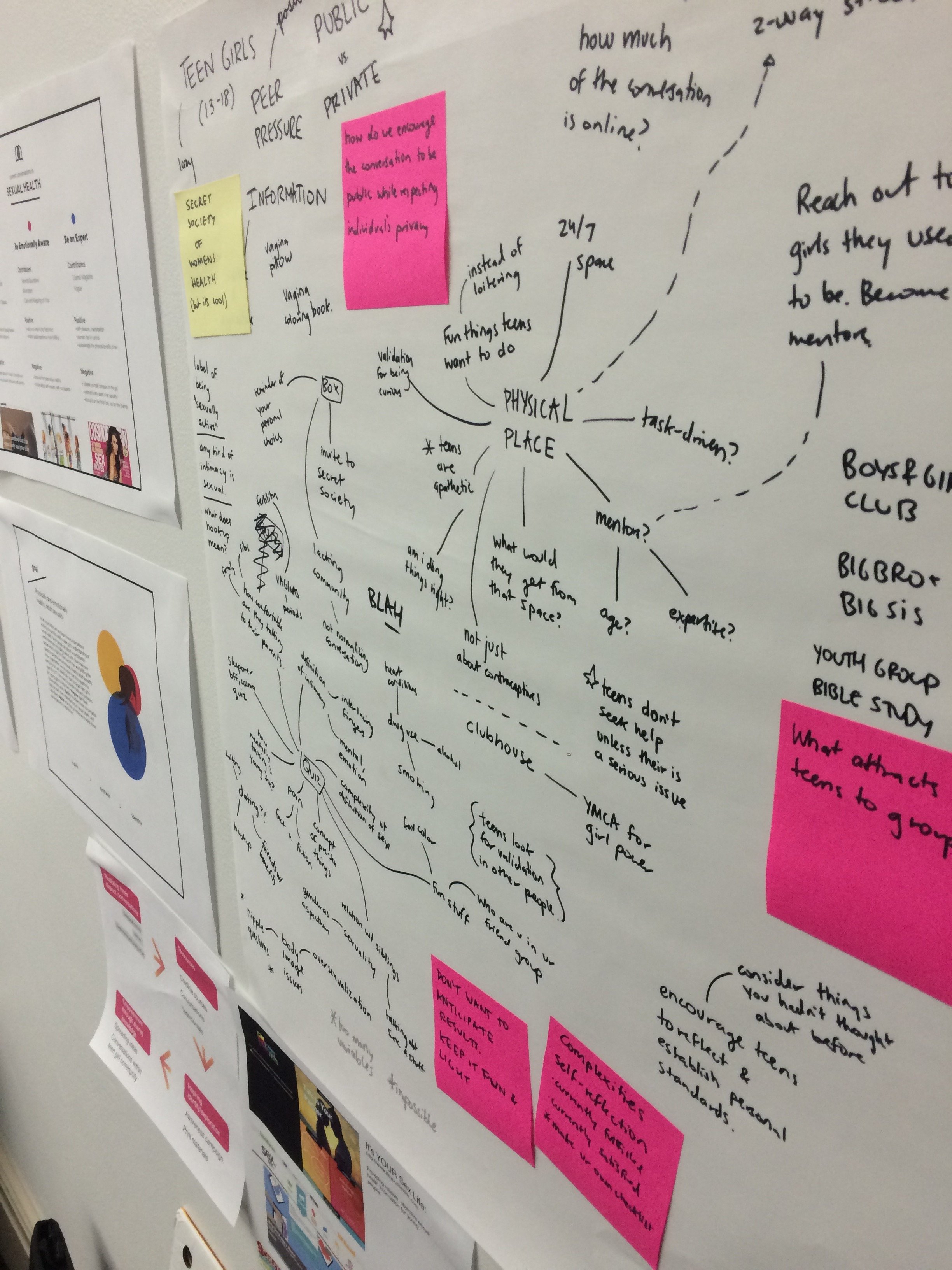
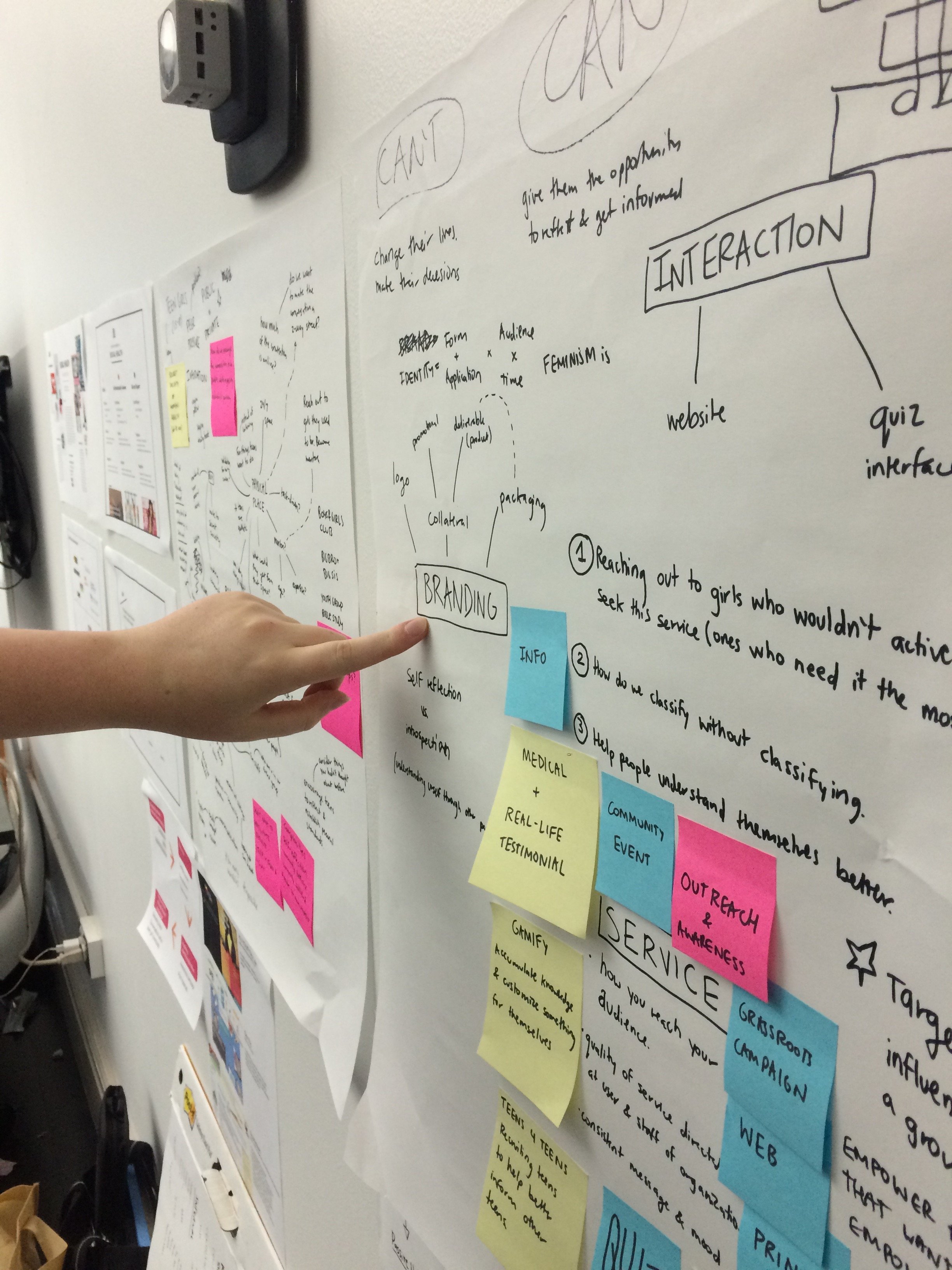
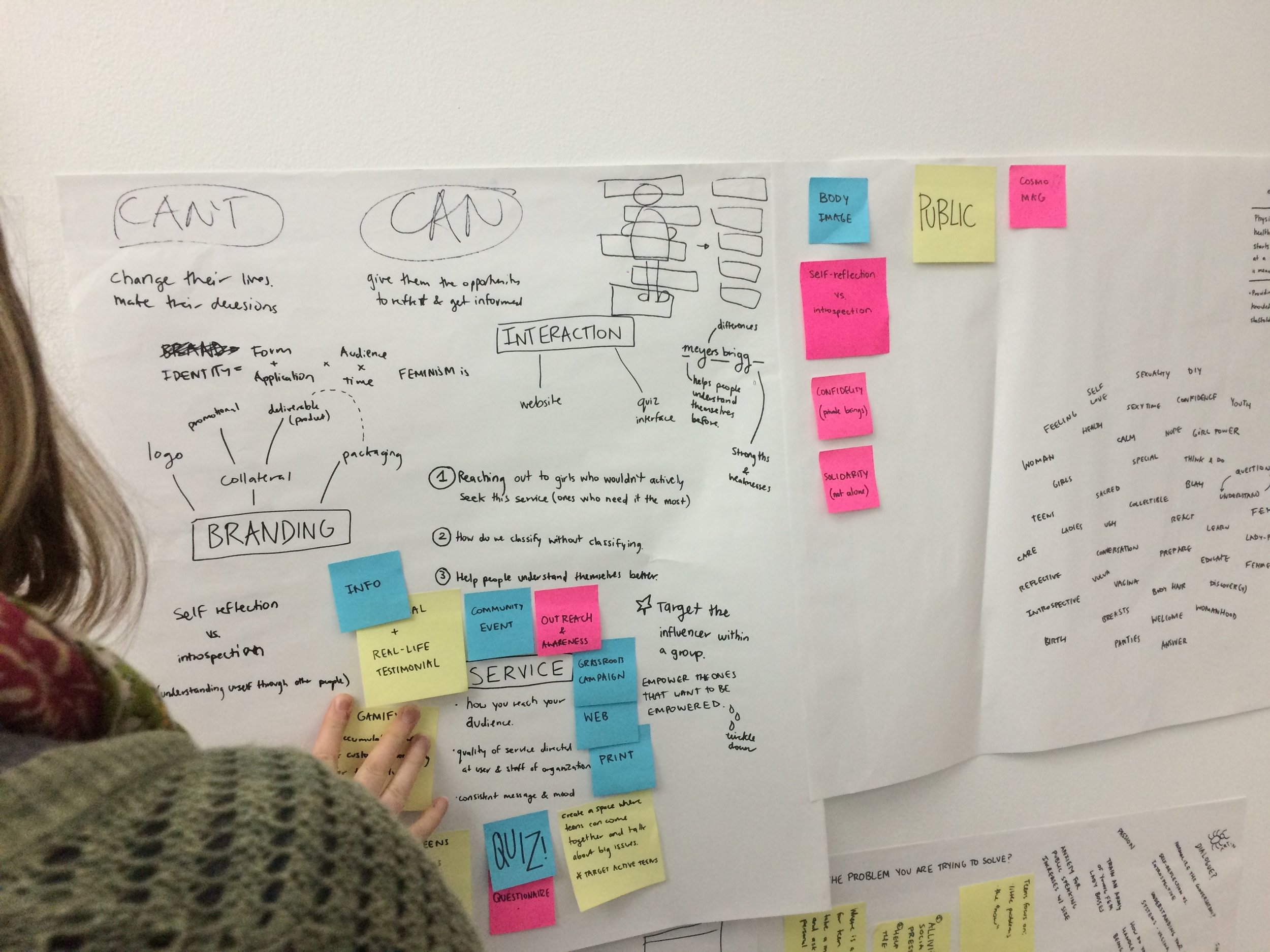
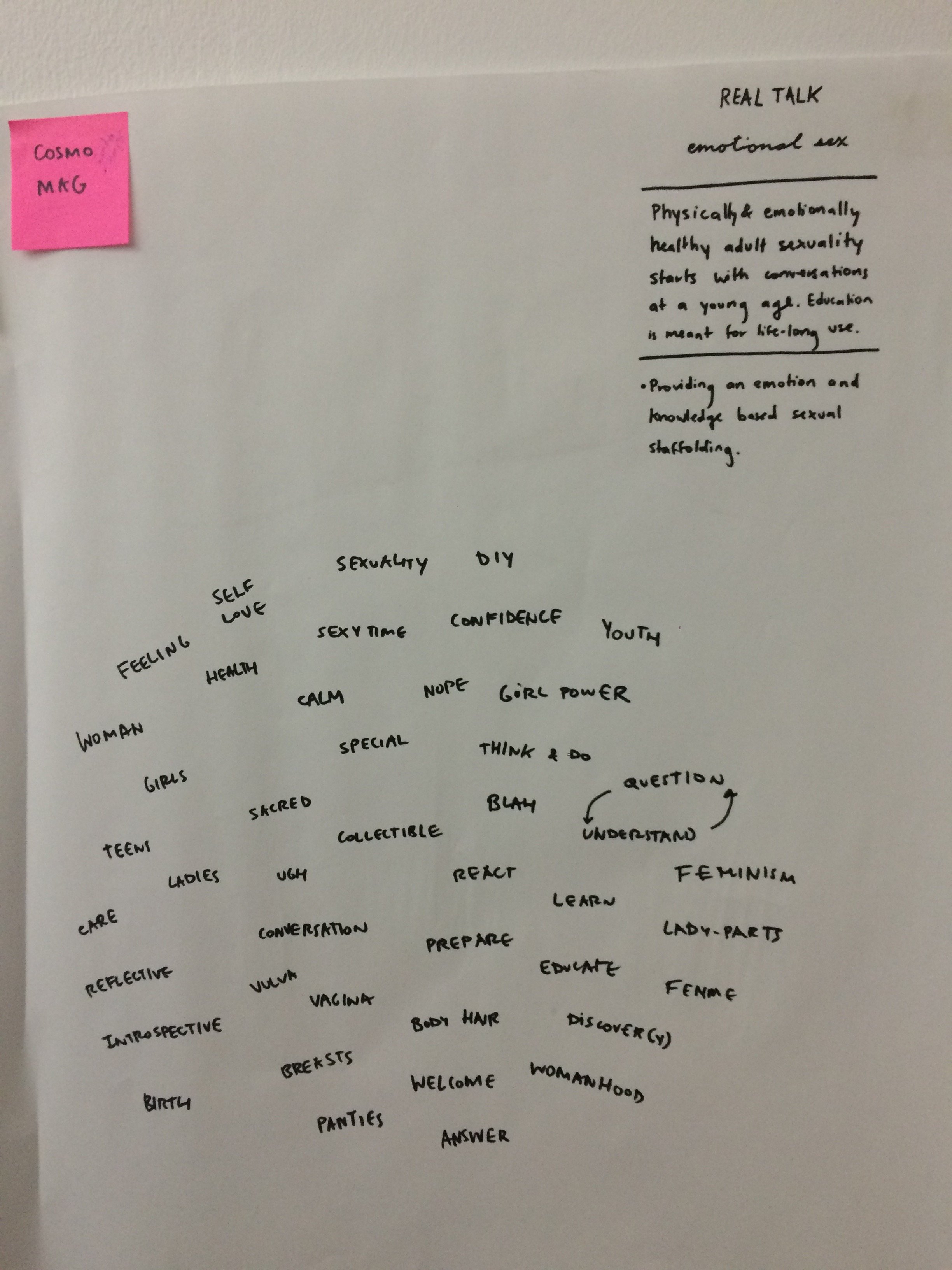

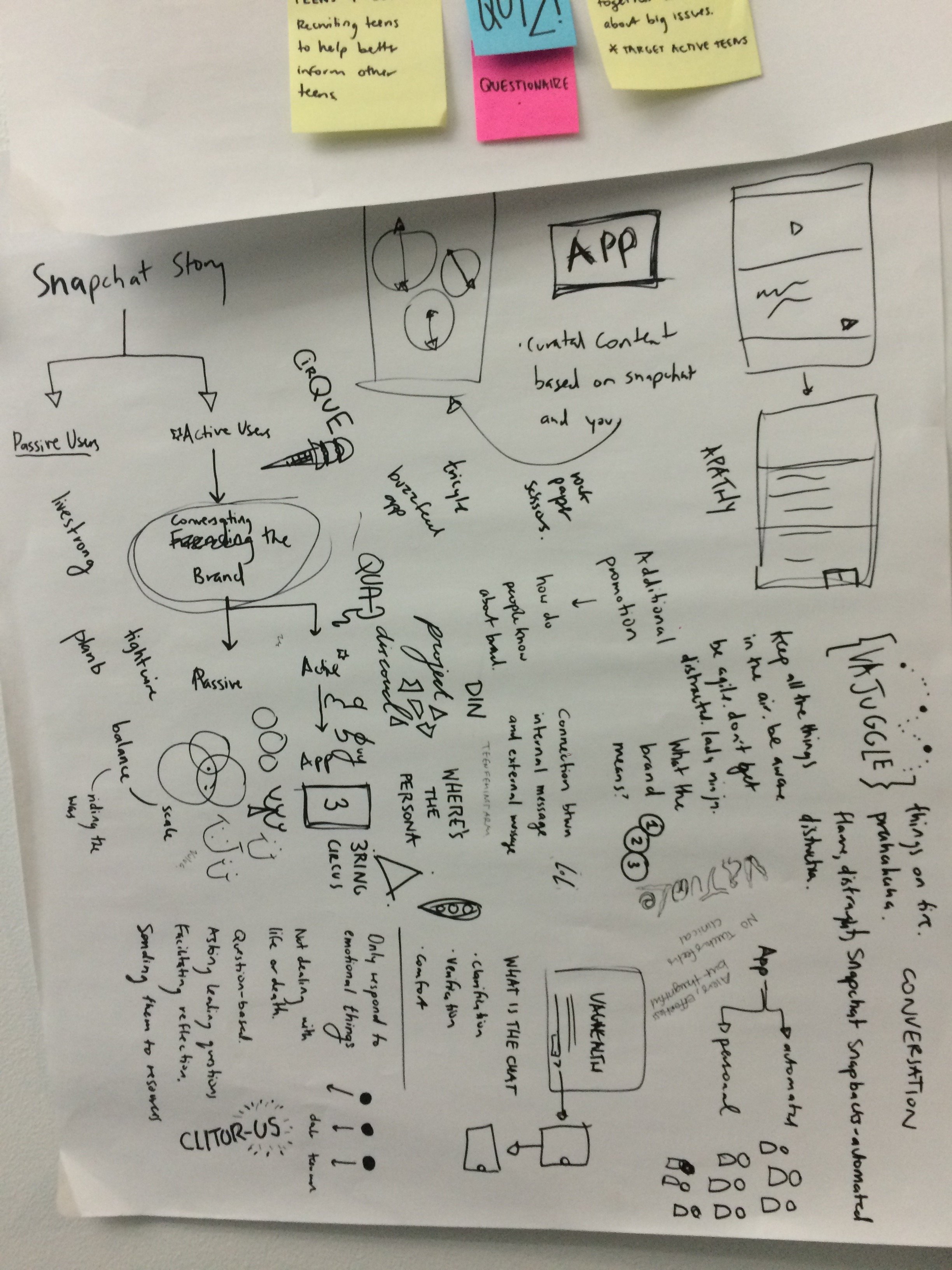
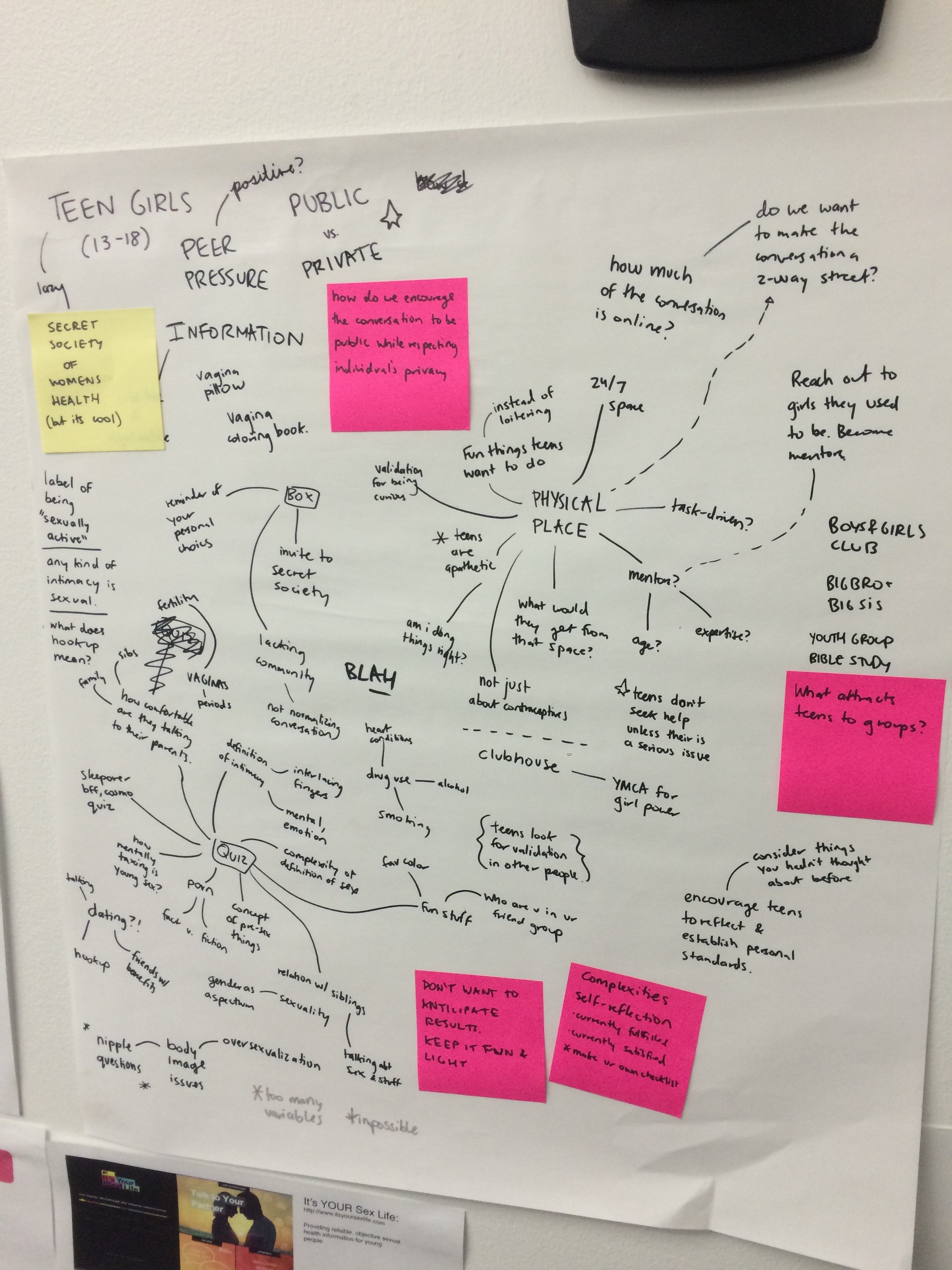
Problems we discovered
Public vs. Private
For some teens sexual health is a very private issue that they don’t feel comfortable talking about openly or expressing in a public setting. Others are very open about their opinions and are more inclined to play an “activist” role in their high school communities and friend circles. As we began to craft a solution we struggled to determine which of these types of girls we could target most successfully. In other words, should our organization encourage everyone to be open about their sexual decisions or should we encourage a more private and reserved conversation?
In the end we decided that in order to really “change the conversation” we had to make the conversation public and commit ourselves to a more liberal perspective in challenging the status quo.
When is the right time?
Another issue we ran into was the question of when is the best time to begin promoting the conversation of sexual health with teens. We wanted our organization to be relevant for teens who are sexually active at a young age as well as those who are pushing 18 and have never been kissed. Neither one of these “sexual journeys” is better than the other. Neither should be shamed as too slow or too fast and we wanted our brand to really promote these perspective.
Some parents get understandable nervous when their 13 year-old starts asking about condoms but we quickly realized that we needed to embrace the idea that just because teens are asking, doesn’t mean they are doing.
The second before a teen is about to make an important sexual decision is not the second in which parents should (or can) intervene. Instead it is more productive to begin these health conversations early on in order to avoid misinformation and misunderstandings at a later age.
What we learned
Through all the failed idea propositions, we were able to further refine what it was we wanted our organization to be to these girls and what resources they really needed.
Teens are great at self-reflection. They are constantly thinking about themselves and how others perceive them. They are always recalibrating themselves; experimenting with the way they dress, the way they talk and the way the relate to others in order to fit a more idealized version of themselves
However they are not often encouraged to engage in introspection; to take a moment and think more intently about their personal growth outside the glare of peers, parents and society. This is a phase of self-development that begins most often as girls enter their college-aged years and are forced to redefine their
sense of self within a community that may be more open to embracing the nuances that were muted in the small pond of their local community high schools.
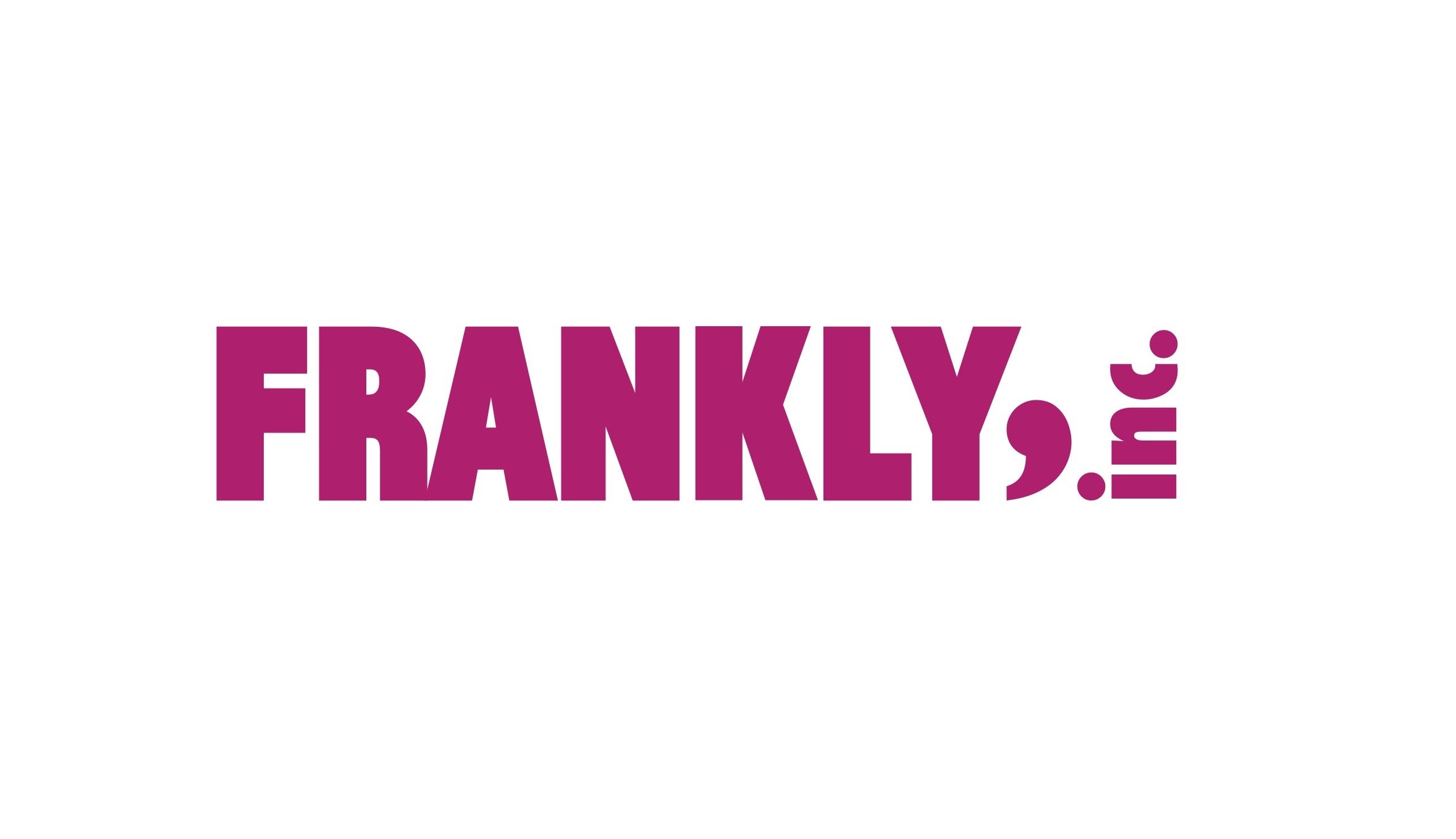
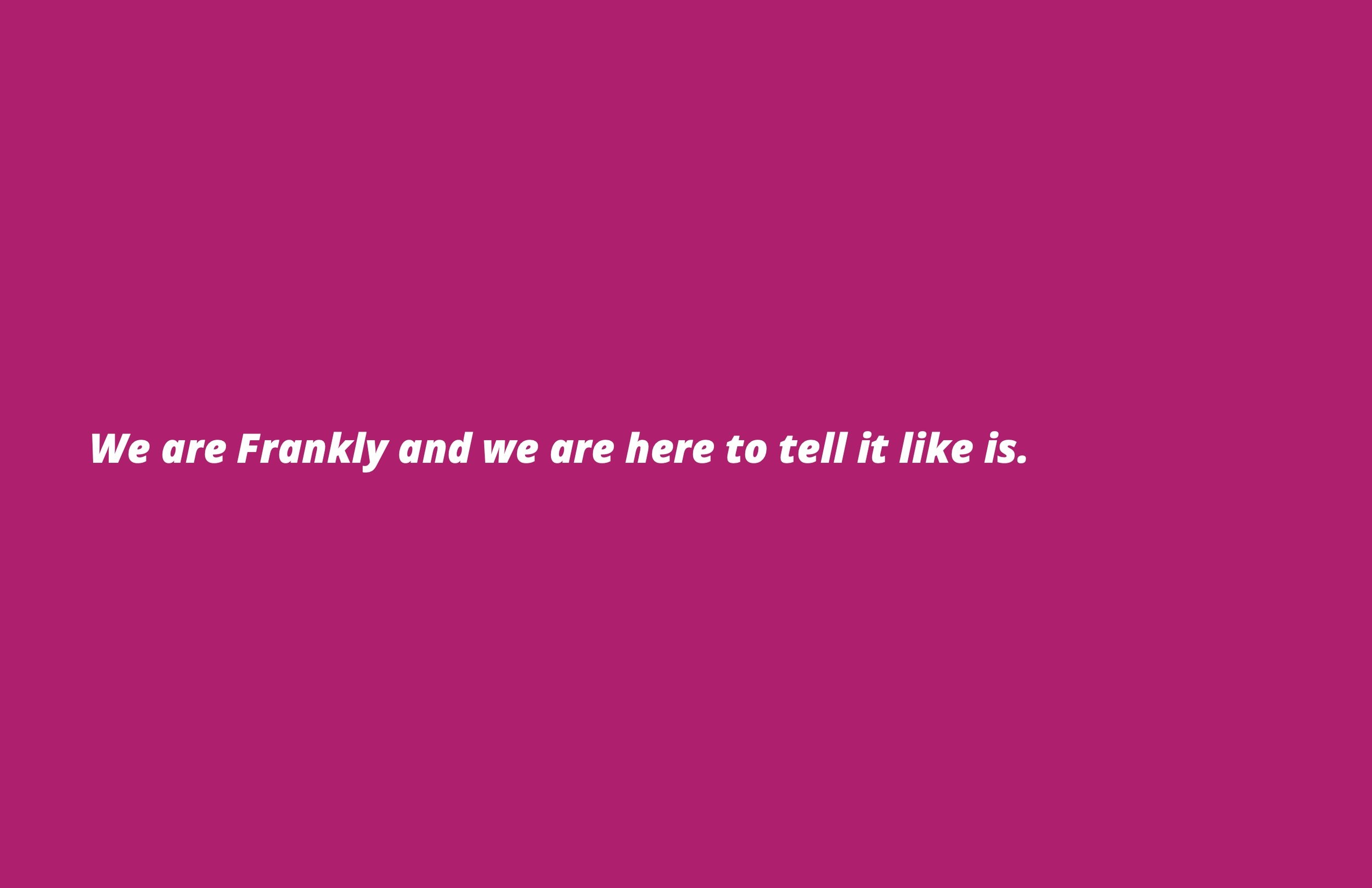
The BE SAFE / SMART / SEXY System
As teens define and develop their idea of sexual health they must reconcile three distinct types of conversation.
We want to provide tools and resources for young girls to help them recognize that these conversations exist, identify the effect these conversation have on their own understanding of sexual health, and help them decide what their priorities are to keep these conversations in equilibrium.
Service Ecosystem
The Frankly, ecosystem works to provide the most relevant sexual health content to teen girls. Through the Frankly Snapchat, App, and Conferences, we, as an organization strive to meet girls where they are. Both online, via the Frankly App and the Snapchat, as well as in real life, with the Frankly Day initiative. In interacting with the Frankly, touchpoint teenage girls will be able to effectively apply the knowledge they’ve gained in order to establish an open minded view of their personal sexual health.
Levels of Engagement
Frankly, recognizes that each girl has individual interests in regards to sexual health. The range of engagement levels offers girls the chance to involve themselves however they chose. From simply viewing our Discover channel to downloading the App and attending the conferences, girls have the opportunity to gain valuable knowledge about the current conversations relevant to sexual health.
Frankly, Brand
The visual identity is approachable and fun, reclaiming vernacular tropes in both an intentional and ironic way. The brand is founded on raw authenticity and unapologetic honesty. The Frankly brand is the big sister that girls always wanted.
Constantly bombarded with contradictory messages about their own bodies and sexual health, weeding out what’s true and what’s not can be nearly impossible. The formal clinical approach is effective to some degree, but we have found that teens are much more responsive to brands and initiatives that meet them where they are and that understands their own aesthetic and point of view.

